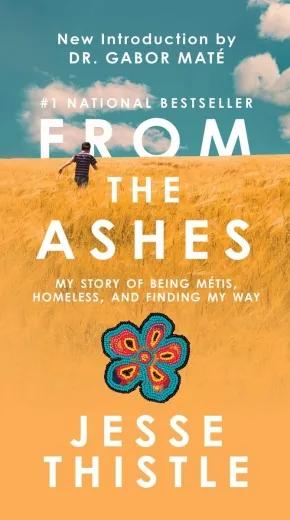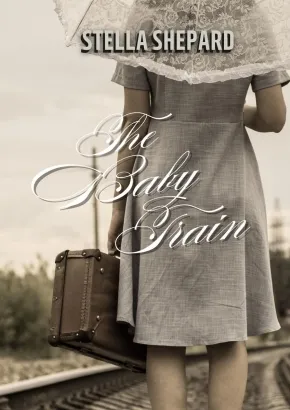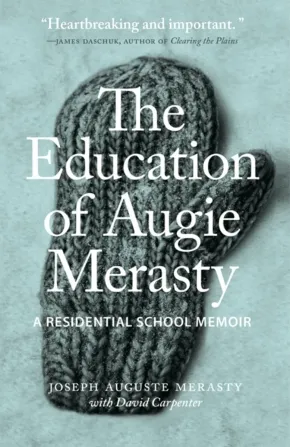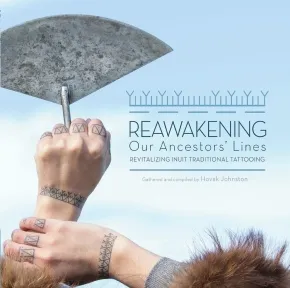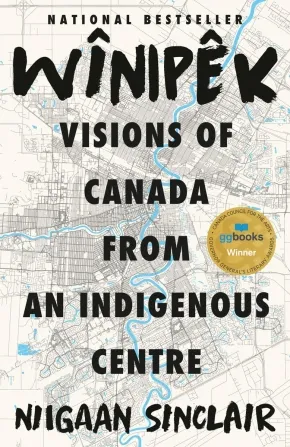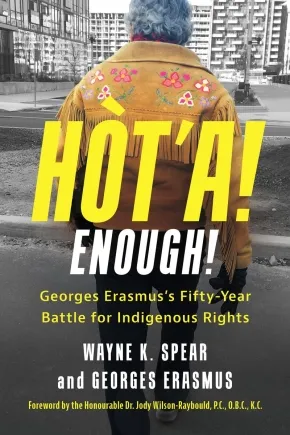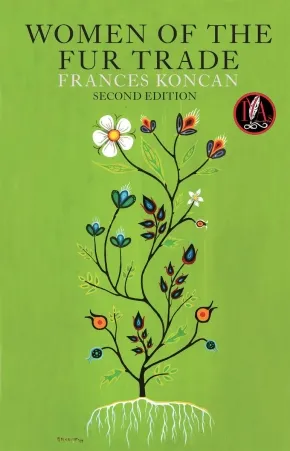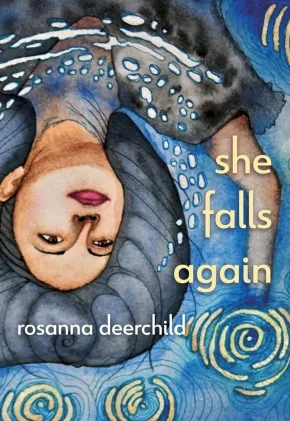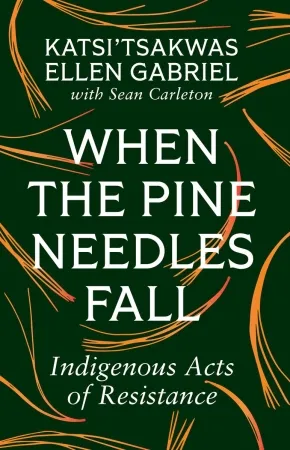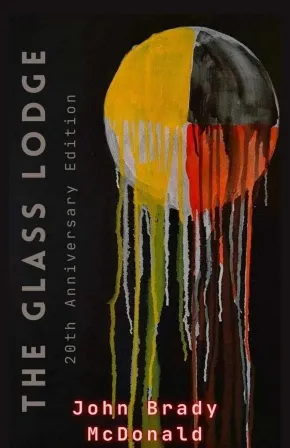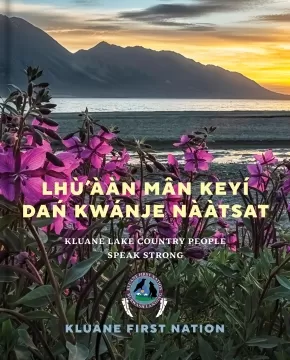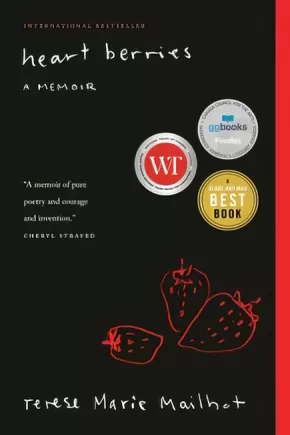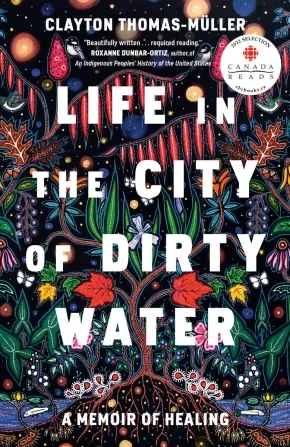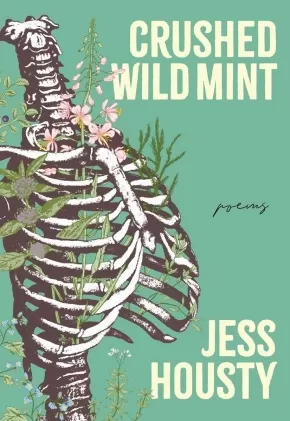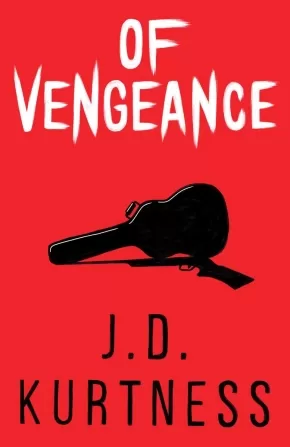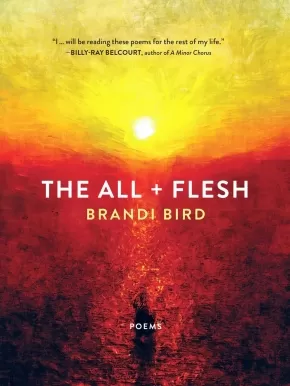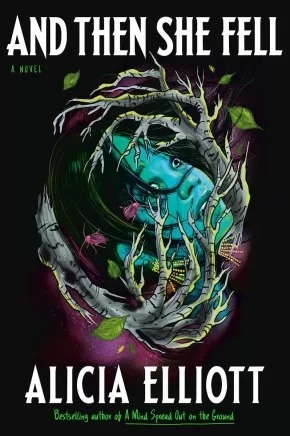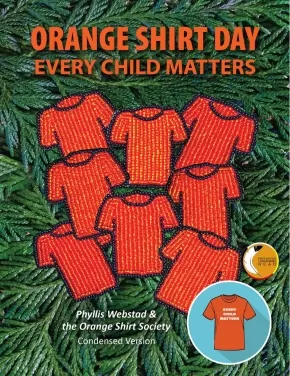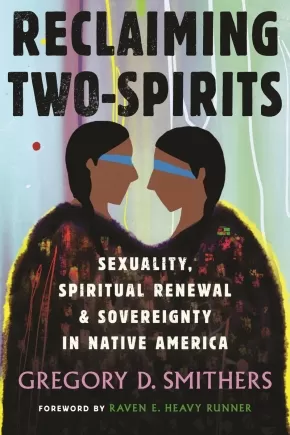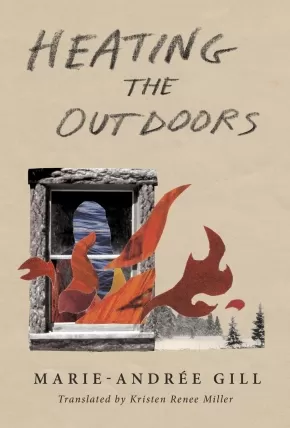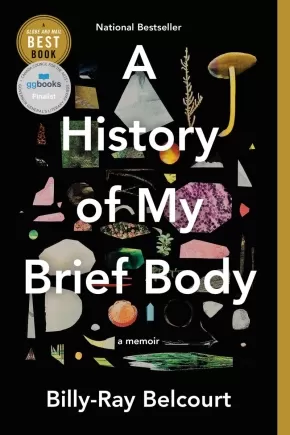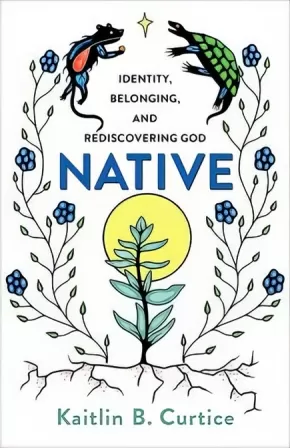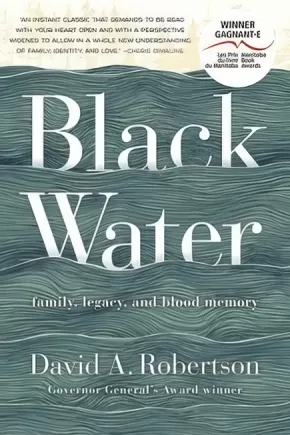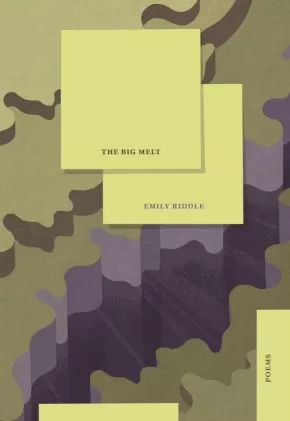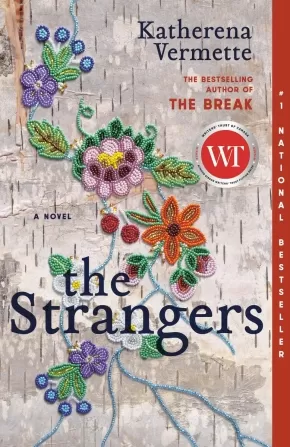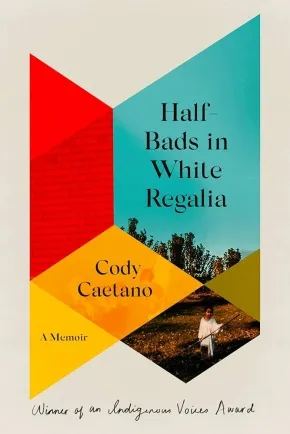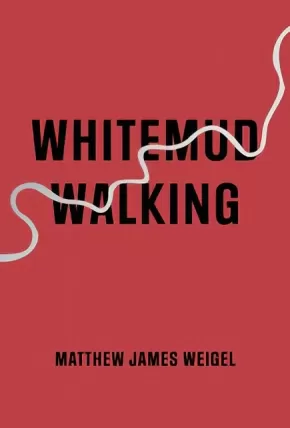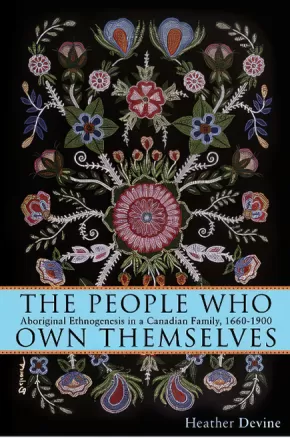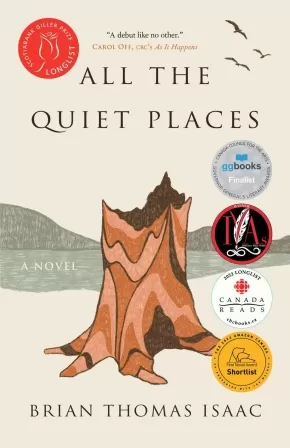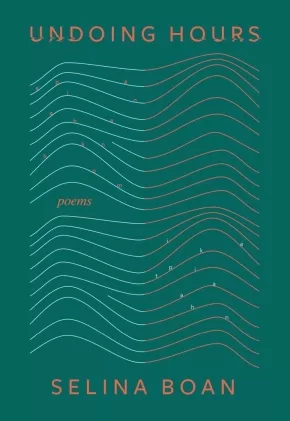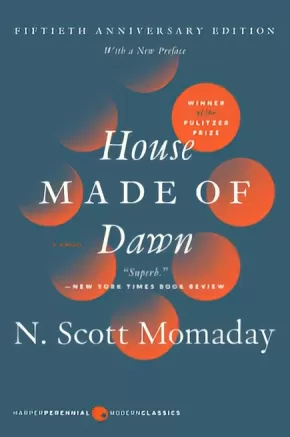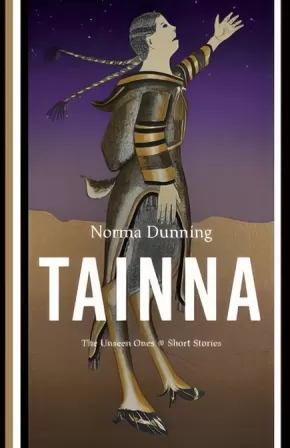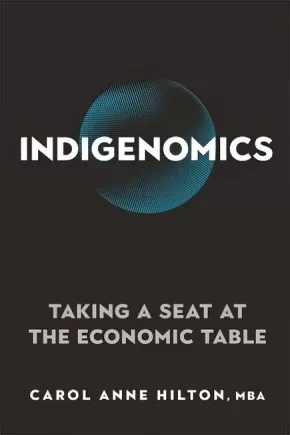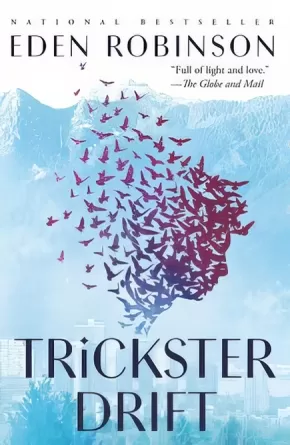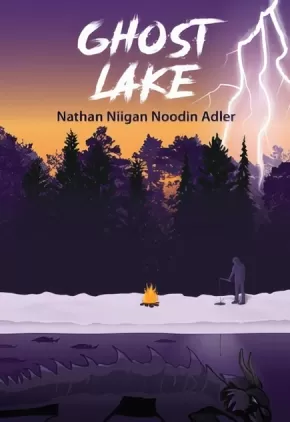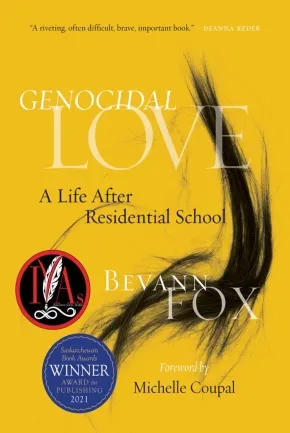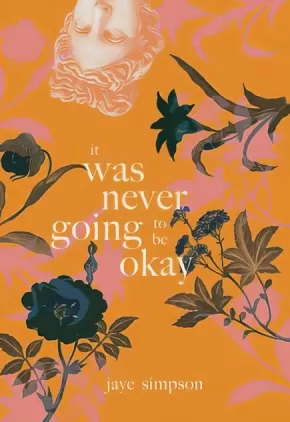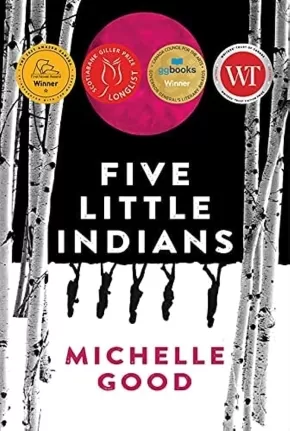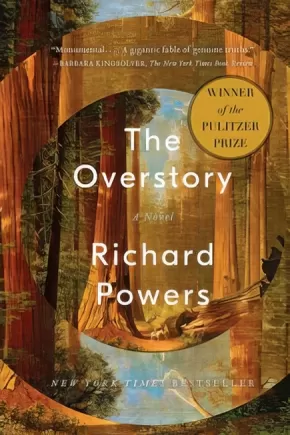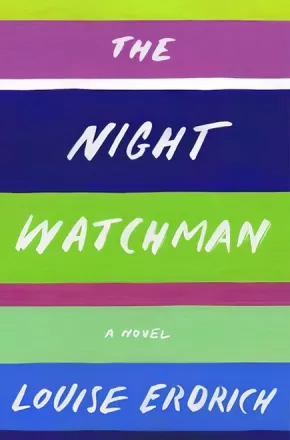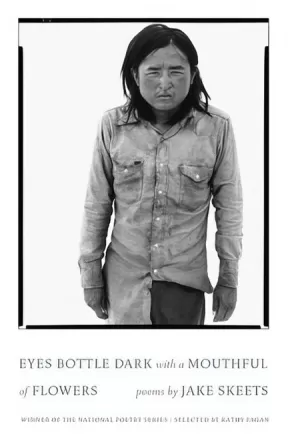
Award-Winning
1
-
15
of
83 Results;
Sort By
Go To
of 6
From the Ashes: My Story of Being Métis, Homeless, and Finding My Way (PB)
$13.99
Format:
Paperback
Text Content Territories:
Indigenous Canadian; First Nations; Cree (Nehiyawak); Métis;
Reading Level: N/A
ISBN / Barcode: 9781668213728
Synopsis:
Synopsis:
In this extraordinary and inspiring debut memoir, Jesse Thistle, once a high school dropout and now a rising Indigenous scholar, chronicles his life on the streets and how he overcame trauma and addiction to discover the truth about who he is.
If I can just make it to the next minute... then I might have a chance to live; I might have a chance to be something more than just a struggling crackhead.
From the Ashes is a remarkable memoir about hope and resilience, and a revelatory look into the life of a Métis-Cree man who refused to give up.
Abandoned by his parents as a toddler, Jesse Thistle briefly found himself in the foster-care system with his two brothers, cut off from all they had known. Eventually the children landed in the home of their paternal grandparents, but their tough-love attitudes meant conflicts became commonplace. And the ghost of Jesse’s drug-addicted father haunted the halls of the house and the memories of every family member. Struggling, Jesse succumbed to a self-destructive cycle of drug and alcohol addiction and petty crime, spending more than a decade on and off the streets, often homeless. One day, he finally realized he would die unless he turned his life around.
In this heartwarming and heartbreaking memoir, Jesse Thistle writes honestly and fearlessly about his painful experiences with abuse, uncovering the truth about his parents, and how he found his way back into the circle of his Indigenous culture and family through education.
An eloquent exploration of what it means to live in a world surrounded by prejudice and racism and to be cast adrift, From the Ashes is, in the end, about how love and support can help one find happiness despite the odds.
Awards
- 2020 Indigenous Voices Awards Winner for Published Prose in English
- Winner, Kobo Emerging Writer Prize Nonfiction
- Winner, High Plains Book Awards
- An Indigo Book of the Year
Reviews
“From the Ashes hits you like a punch in the gut. It’s an unflinching, heartrending and beautifully written story of survival against seemingly impossible odds. But it’s also a book that should make you furious. Thistle paints a vivid portrait of a country seemingly incapable of doing right by Indigenous youth or by those struggling with homelessness, addiction and intergenerational trauma. That he survived to tell this story is truly a miracle. Still, one question haunts me after finishing this powerful and devastating book: How do we ensure that the next generation isn’t forced to navigate a broken system that takes their lives for granted and fails them at every turn? My greatest hope, then, is that From the Ashes will be the wakeup call Canada needs.” — IAN MOSBY, historian and author of Food Will Win the War
Educator Information
Caution: Deals with mature subject matter.
Additional Information
368 pages | 6.00" x 9.00"
The Baby Train
$24.95
Format:
Paperback
Reading Level: N/A
ISBN / Barcode: 9781773661681
Synopsis:
Synopsis:
Thrust into the foster care system from an early age, Apple moves from house to house on Prince Edward Island without finding a home until she's a teenager and taken in by a couple who never managed to have children themselves. When she falls pregnant, her foster parents are keen to raise the baby with Apple still in the house—to live as a family.
That opportunity is torn from Apple by members of the Catholic Church along with social workers and government officials. Their vicious practices take the babies of unwed mothers and give them to wealthy families in exchange for large "donations" to the church. Apple's beloved baby ends up with a rich couple in the U.S., and is lost to her.
The Baby Train traces her life in the aftermath of that loss, raising subsequent children, creating deep bonds of friendship with other women struggling against society's rigid norms, and carrying underneath it all an unending love for her firstborn child.
We also follow her baby's path, and watch his affluent, neglected childhood and then adulthood unfold. He never knows that his birth mother still yearns for him, still lights him birthday candles every year.
The shameful legacy of forced and coerced adoption in Eastern Canada is brought to life in this sweeping novel.
Awards
- 2025 PMC Indigenous Literature Award Winner
Educator Information
PEI's birth alert practice allowed hospitals or social workers to flag expectant parents whom they felt might put their newborns at risk. Generally, this practice targeted Indigenous and unwed women.
Additional Information
224 pages | 5.75" x 8.00" | Paperback
The Education of Augie Merasty: A Residential School Memoir (HC) (9 in Stock)
$21.95
Format:
Hardcover
Text Content Territories:
Indigenous Canadian; First Nations; Cree (Nehiyawak);
ISBN / Barcode: 9780889773684
Synopsis:
Synopsis:
The Education of Augie Merasty offers a courageous and intimate chronicle of life in a residential school.
Now a retired fisherman and trapper, Joseph A. (Augie) Merasty was one of an estimated 150,000 First Nations, Inuit, and Metis children who were taken from their families and sent to government-funded, church-run schools, where they were subjected to a policy of "aggressive assimiliation."As Merasty recounts, these schools did more than attempt to mold children in the ways of white society. They were taught to be ashamed of their native heritage and, as he experienced, often suffered physical and sexual abuse.Even as he looks back on this painful part of his childhood, Merasty’s generous and authentic voice shines through.
Awards
- 2016 Burt Award Second Place Winner
Reviews
"At 86, Augie Merasty has been a lot of things: Father. Son. Outdoorsman. Homeless. But now he is a first-time author, and the voice of a generation of residential-school survivors.... The Education of Augie Merasty is the tale of a man not only haunted by his past, but haunted by the fundamental need to tell his own story... one of the most important titles to be published this spring." —Globe and Mail
"[Augie] wrote his memoir to show people the unbelievable atrocities suffered by so many Indigenous people and in the hope that others would come forward to tell their stories of what happened in the residential schools." —Eagle Feather News
"This book is so much bigger than its small size. It is a path to healing. We cannot change history, but we can acknowledge it, learn about it, and remember it." —Prairies North
"The Education of Augie Merasty might be a small book, but it carries a punch to it that all Canadian need to read and understand." —Rabble
"A truly extraordinary memoir by a truly extraordinary man." —Midwest Book Review
"Carpenter's introduction and afterword... allow us to come to better understand Augie's 'sometimes chaotic, sometimes heroic aftermath of his life,' as Carpenter describes his last decade. Where Augie focuses on physical scars, Carpenter's experiences with Augie illustrate the long-term impacts on his residential school experience. And with The Education of Augie Merasty, he helps Merasty--who could be any number of individuals we each pass on the street--find his voice." —Active History
"Unsettling and profound, and good." —Blacklock's Reporter
"In this book I have seen horror through eyes of a child." —James Daschuk, author of Clearing the Plains
"A story in which our entire nation has an obscure and dark complicity." —David Carpenter, co-author of The Education of Augie Merasty and author of The Gold and other books
Educator Information
The Canadian Indigenous Books for Schools list recommends this resource for Grades 9-12 English Language Arts and Social Studies.
Caution: Mature subject matter and descriptions of discrimination, sexual/physical violence, and substance abuse.
Additional Information
105 pages | 4.25" x 6.53" | Hardcover
Reawakening Our Ancestors' Lines: Revitalizing Inuit Traditional Tattooing (PB)
$24.95
Format:
Paperback
Text Content Territories:
Indigenous Canadian; Inuit;
Reading Level: N/A
ISBN / Barcode: 9781772275698
Synopsis:
Synopsis:
For thousands of years, Inuit practiced the traditional art of tattooing. Created the ancient way, with bone needles and caribou sinew soaked in seal oil, sod, or soot, these tattoos were an important tradition for many Inuit women, symbols etched on their skin that connected them to their families and communities. But with the rise of missionaries and residential schools in the North, the tradition of tattooing was almost lost. In 2005, when Angela Hovak Johnston heard that the last Inuk woman tattooed in the old way had died, she set out to tattoo herself in tribute to this ancient custom and learn how to tattoo others. What was at first a personal quest became a project to bring the art of traditional tattooing back to Inuit women across Nunavut, starting with Johnston’s home community of Kugluktuk. Collected in this beautiful book are moving photos and stories from more than two dozen women who participated in Johnston’s project. Together, these women have united to bring to life an ancient tradition, reawakening their ancestors’ lines and sharing this knowledge with future generations.
Awards
- 2018 NorthWords Book Prize Winner
Reviews
"This gorgeous photographic essay on the Inuit Tattoo Revitalization Project is a deeply personal and affirming work about learning and preserving traditions-and reclaiming what residential schools tried to destroy."-School Library Journal
Additional Information
72 pages | 10.00" x 10.00" | Paperback
Wînipêk: Visions of Canada from an Indigenous Centre (PB)
$24.00
Format:
Paperback
Text Content Territories:
Indigenous Canadian; First Nations; Anishinaabeg;
Reading Level: N/A
ISBN / Barcode: 9780771099199
Synopsis:
Synopsis:
From ground zero of this country's most important project: reconciliation
Niigaan Sinclair has been called provocative, revolutionary, and one of this country's most influential thinkers on the issues impacting Indigenous cultures, communities, and reconciliation in Canada. In his debut collection of stories, observations, and thoughts about Winnipeg, the place he calls "ground zero" of Canada's future, read about the complex history and contributions of this place alongside the radical solutions to injustice and violence found here, presenting solutions for a country that has forgotten principles of treaty and inclusivity. It is here, in the place where Canada began—where the land, water, people, and animals meet— that a path "from the centre" is happening for all to see.
At a crucial and fragile moment in Canada's long history with Indigenous peoples, one of our most essential writers begins at the centre, capturing a web spanning centuries of community, art, and resistance.
Based on years' worth of columns, Niigaan Sinclair delivers a defining essay collection on the resilience of Indigenous peoples. Here, we meet the creators, leaders, and everyday people preserving the beauty of their heritage one day at a time. But we also meet the ugliest side of colonialism, the Indian Act, and the communities who suffer most from its atrocities.
Sinclair uses the story of Winnipeg to illuminate the reality of Indigenous life all over what is called Canada. This is a book that demands change and celebrates those fighting for it, that reminds us of what must be reconciled and holds accountable those who must do the work. It's a book that reminds us of the power that comes from loving a place, even as that place is violently taken away from you, and the magic of fighting your way back to it.
Awards
- Winner of the 2024 Governor General's Literary Award for Nonfiction.
Additional Information
384 pages | 5.14" x 7.92" | b&w photos throughout | Paperback
Hòt'a! Enough!: Georges Erasmus's Fifty-Year Battle for Indigenous Rights
$28.99
Format:
Paperback
Text Content Territories:
Indigenous Canadian; First Nations; Dene;
Reading Level: N/A
ISBN / Barcode: 9781459752900
Synopsis:
Synopsis:
The political life of Dene leader Georges Erasmus - a radical Native rights crusader widely regarded as one of the most important Indigenous leaders of the past fifty years.
For decades, Georges Erasmus led the fight for Indigenous rights. From the Berger Inquiry to the Canadian constitutional talks to the Oka Crisis, Georges was a significant figure in Canada's political landscape. In the 1990s, he led the Royal Commission on Aboriginal Peoples and afterward was chair and president of the Aboriginal Healing Foundation, around the time that Canada's residential school system became an ongoing frontpage story.
Georges's five-decade battle for Indigenous rights took him around the world and saw him sitting across the table from prime ministers and premiers. In the 1980s, when Georges was the National Chief of the Assembly of First Nations, he was referred to as the "Thirteenth Premier." This book tells the personal story of his life as a leading Indigenous figure, taking the reader inside some of Canada's biggest crises and challenges.
Awards
- 2025 Indigenous Voices Awards - Prose in English Award
Additional Information
320 pages | 6.00" x 9.00" | 57 b&w illustrations | Paperback
Curve!: Women Carvers on the Northwest Coast
$45.00
Artists:
Format:
Hardcover
Text Content Territories:
Indigenous Canadian; First Nations;
Reading Level: N/A
ISBN / Barcode: 9781773272542
Synopsis:
Synopsis:
An eighty-year overview of wood and argillite carving by Indigenous women artists on the Northwest Coast.
Though women of the Northwest Coast have long carved poles, canoes, panels, and masks, many of these artists have not become as well known outside their communities as their male counterparts. These artists are cherished within their communities for helping to keep traditional carving practices alive, and for maintaining the dances, songs, and ceremonies that are intertwined with visual art production. This book, and an associated exhibition at the Audain Art Museum, gathers a range of sculptural formats by Indigenous women in order to expand the discourse of carving in the region.
Both the exhibition and publication are co-curated by Dana Claxton, artist, filmmaker and head of the University of British Columbia's Department of Art History, Visual Art and Theory; and Dr. Curtis Collins, the AAM's Director & Chief Curator. Commentaries by Skeena Reece, Claxton, and Marika Swan, and interviews with artists Dale Campbell and Mary Anne Barkhouse are presented alongside more than one hundred artworks from public and private collections across North America, including several newly commissioned pieces.
Featured artists include:
- Ellen Neel (Kwakwaka'wakw, 1916-1966) - Freda Diesing (Haida, 1925-2002) - Doreen Jensen (Gitxsan, 1933-2009) - Susan Point (Musqueam, b. 1952) - Dale Campbell (Tahltan, b. 1954) - Marianne Nicolson (Kwakwaka'wakw, b. 1969) - Arlene Ness (Gitxsan, b. 1970s) - Melanie Russ (Haida, b. 1977) - Marika Swan (Nuu-chah-nulth, b. 1982) - Morgan Asoyuf (Ts'msyen, b. 1984) - Cori Savard (Haida, b. 1985) - Cherish Alexander (Gitwangak, b. 1987) - Stephanie Anderson (Wetsuwet'en, b. 1991) - Veronica Waechter (Gitxsan, b. 1995)
Awards
- Winner of the 2025 Bill Duthie Booksellers' Choice Award
Additional Information
160 pages | 9.20" x 1.10" | 120 colour photos | Hardcover
Women of the Fur Trade - 2nd Edition
$19.95
Format:
Paperback
Text Content Territories:
Indigenous Canadian; Métis; First Nations; Anishinaabeg; Ojibway;
Reading Level: N/A
ISBN / Barcode: 9780369105158
Synopsis:
Synopsis:
In eighteen hundred and something something, somewhere upon the banks of a Reddish River in Treaty One Territory, three very different women with a preference for twenty-first century slang sit in a fort sharing their views on life, love, and the hot nerd Louis Riel.
Marie-Angelique, a Metis Taurus, is determined to woo Louis (a Metis Libra)—who will be arriving soon—by sending him boldly flirtatious letters. Eugenia, an Ojibwe Sagittarius, brings news of rebellion back to the fort after trading, but isn’t impressed by Louis’s true mediocre nature. And Cecilia, a pregnant British Virgo, is anxiously waiting on her husband’s return from an expedition, but can’t resist pining over the heartthrob Thomas Scott (Irish Capricorn), who is actually the one secretly responding to Marie-Angelique’s letters. This will all go smoothly, right?
This lively historical satire of survival and cultural inheritance shifts perspectives from the male gaze onto women’s power in the past and present through the lens of the rapidly changing world of the Canadian fur trade.
Awards
- 2023 Indigenous Voices Award for Published Prose in English
- 2018 Toronto Fringe Best New Play Contest winner
- 2024 Dora Mavor Moore Award for Outstanding New Play
Reviews
“Not only is the play a fun and clever look at the province’s history, but by weaving in modern slang and references, Koncan (who is of Anishinaabe and Slovene descent) highlights how many Indigenous issues from our past are still relevant today.” — Stephanie Cram, CBC News
“A timely, provocative piece of theatre written from a perspective and voice we need to hear.”— Ian Ross, Winnipeg Free Press
Additional Information
120 pages | 5.32" x 8.35" | 2nd Edition | Paperback
First Métis Man of Odesa
$18.95
Format:
Paperback
Text Content Territories:
Indigenous Canadian; Métis;
Reading Level: N/A
ISBN / Barcode: 9780369105127
Synopsis:
Synopsis:
Matt and Masha hit it off during a theatre research trip in Ukraine. At first they seem like opposites: Masha loves the sea, Matt loves mountains. Masha is Ukrainian, Matt is Métis. But the passionate spark ignited between them cannot be denied. Despite the improbabilities of a cross-continental relationship, a few fairy-tale visits overseas solidifies their bond. But when it seems distance could be the only obstacle in their path, a series of extreme circumstances put their commitment to the ultimate test.
Based on actual events, First Métis Man of Odesa is the extraordinary true story of a whirlwind romance that withstands a global pandemic, a surprise pregnancy, and the Russian invasion of Ukraine. Transcending the usual tropes of documentary theatre, this heartwarming how-we-got-together tale turns art of the here and now into a catalyst for action and a hopeful ode for a better future.
Awards
- 2024 Dora Mavor Moore Award for Outstanding New Play winner
Reviews
“A star-crossed, windswept, war-torn romcom that waltzes back and forth across the threshold that separates dreams from nightmares.” — Ben Waldman, Winnipeg Free Press
“Many of the best tales in the show are so deeply improbable, or so straightforwardly honest, that the plot lines could never have held up as fiction; but as the true stories they are, they triumph.” — Julia Peterson, Saskatoon StarPhoenix
“For all its full-blown drama, First Métis Man of Odesa retains a dreamy charm without ever letting go of the truth.”— Liane Faulder, Edmonton Journal
Additional Information
80 pages | 5.12" x 7.62" | Paperback
She Falls Again
$23.95
Format:
Paperback
Text Content Territories:
Indigenous Canadian; First Nations; Cree (Nehiyawak);
Reading Level: N/A
ISBN / Barcode: 9781552454879
Synopsis:
Synopsis:
The Sky Woman has returned to bring down the patriarchy!
This book is about a poet who may or may not be going crazy, who is just trying to survive in Winnipeg, where Indigenous people, especially women, are being disappeared. She is talking to a crow who may or may not be a trickster, and who brings a very important message: Sky Woman has returned, and she is ready to take down the patriarchy.
This is poetry, prose and dialogue about the rise and return of the matriarch. It’s a call to resistance, a manifesto to the female self.
Cree poet and broadcaster Rosanna Deerchild is an important voice for our time. Her poems – angry, funny, sad – demand a new world for Indigenous women.
Awards
- 2025 Indigenous Voices Awards - Poetry in English Award
Additional Information
96 pages | 5.00" x 8.00" | Paperback
When the Pine Needles Fall: Indigenous Acts of Resistance
$32.95
Format:
Paperback
Text Content Territories:
Indigenous Canadian; First Nations; Haudenosaunee (Iroquois); Kanyen'keha:ka (Mohawk); Kanehsatà:ke; Kahnawà:ke ;
Reading Level: N/A
ISBN / Barcode: 9781771136501
Synopsis:
Synopsis:
There have been many things written about Canada’s violent siege of Kanehsatà:ke and Kahnawà:ke in the summer of 1990, but When the Pine Needles Fall: Indigenous Acts of Resistance is the first book from the perspective of Katsi’tsakwas Ellen Gabriel, who was the Kanien’kehá:ka (Mohawk) spokesperson during the siege. When the Pine Needles Fall, written in a conversational style by Gabriel with historian Sean Carleton, offers an intimate look at Gabriel’s life leading up to the 1990 siege, her experiences as spokesperson for her community, and her work since then as an Indigenous land defender, human rights activist, and feminist leader.
More than just the memoir of an extraordinary individual, When the Pine Needles Fall offers insight into Indigenous language, history, and philosophy, reflections on our relationship with the land, and calls to action against both colonialism and capitalism as we face the climate crisis. Gabriel’s hopes for a decolonial future make clear why protecting Indigenous homelands is vital not only for the survival of Indigenous peoples, but for all who live on this planet.
Awards
- 2025 Canadian Historical Association Indigenous History Book Prize
- 2025 Errol Sharpe Book Prize
- 2025 Wilson Institute Book Prize
Reviews
“When the Pine Needles Fall is a profound treatise and manifesto chronicling Haudenosaunee resistance to land theft by one of the most important Land Defenders of our time. Gabriel’s work is the book on Indigenous resistance I’ve been waiting for my whole life. It is a must-read for anyone concerned with the continuation of life on this planet.” — Leanne Betasamosake Simpson, co-author of “Rehearsals for Living”
“Katsi’tsakwas Ellen Gabriel’s words in When the Pine Needles Fall are gifts that serve as a beacon of light by igniting our hearts, minds, and spirits. Through her boundless wisdom grounded in healing work as a Land Defender on Turtle Island, she calls for fierce Indigenous resistance and radical global solidarity to put an end to root causes of oppression worldwide: capitalism, patriarchy, and settler colonialism. Gabriel reminds us that a more just, kind, and caring world—where all life is precious—is possible for the next seven generations, but only if we fight for it.” — Samir Shaheen-Hussain, MD, author of “Fighting for A Hand to Hold: Confronting Medical Colonialism against Indigenous Children in Canada”
“When the Pine Needles Fall is a remarkable and revelatory account of the 1990 siege of Kanehsatà:ke and Kahnawà:ke, when provincial, municipal, and national armed forces targeted these Mohawk communities. It is also one of the best first-hand accounts of Indigenous activism that I have ever read, relayed in moving and extraordinary form. An essential addition to contemporary First Nations history and the growing field of Indigenous Studies.” — Ned Blackhawk, Western Shoshone, author of “The Rediscovery of America: Native Peoples and the Unmaking of U.S. History”
“As a treatise on women and culture-based governance from a remarkable Haudenosaunee leader, When the Pine Needles Fall offers me hope and renewed energy. Through her life work, Ellen Gabriel demonstrates how to persevere, remain optimistic, and continue with creative and activist endeavours. The book effectively situates the ‘crisis’ within its centuries-long context, marking a tipping point for Canada while highlighting ongoing challenges. It also examines how mainstream narratives are constructed around Indigenous struggles, providing a comprehensive profile of Gabriel’s diverse contributions to Indigenous resistance and resurgence.” — Kim Anderson, author of“ Life Stages and Native Women: Memory, Teachings, and Story Medicine”
“Katsi’tsakwas Ellen Gabriel’s personal account of the 1990 siege of Kanehsatà:ke and Kahnawà:ke is a crucial contribution to our understanding of these dramatic events and of the political context of the time. Her lifetime dedication to the defence of Indigenous peoples and women’s rights is truly exemplary and constitutes an inspiration for generations to come.” — Bernard Duhaime, professor, Faculty of Political Science and Law, Université du Québec à Montréal
“In When the Pine Needles Fall, celebrated activist Katsi’tsakwas Ellen Gabriel gifts us with an expansive account of the 1990 siege of Kanehsatà:ke and Kahnawà:ke. This alone provides a captivating analysis of this seminal moment and its legacy within larger movements for Indigenous sovereignty on Turtle Island. But Gabriel, an artist, also paints the negative space, braiding her relationship to the land, Kanien’kehá:ka teachings, and the language with her tireless work against settler colonialism, extractive capitalism, and patriarchy. This essential book is an inspiring conversation reminding us that decolonization is world-building rooted in an ethics of relationality and care.” — Nazila Bettache, MD, MPH; assistant professor of medicine, Université de Montréal; social justice organizer and co-editor of “Reflections on Illness”
“I honour my sister whose words speak the truth. One of the most powerful quotes by Katsi’tsakwas is: ‘I’m a Kanien’kehá:ka woman who cares deeply about our land and I want a better future for the generations to come.’ Everything she speaks about in this book is directly connected to these words.” — Beverley Jacobs, CM, LLB, LLM, PhD; Kanien’kehá:ka, Bear Clan, Six Nations Grand River Territory; associate professor, Faculty of Law, University of Windsor
Additional Information
280 pages | 5.50" x 8.50" | Paperback
The Glass Lodge: 20th Anniversary Edition
$34.99
Format:
Hardcover
Text Content Territories:
Indigenous Canadian; First Nations; Cree (Nehiyawak); Métis;
Reading Level: N/A
ISBN / Barcode: 9781998273119
Synopsis:
Synopsis:
A new edition, revised and updated by the author, of John Brady McDonald’s acclaimed debut poetry collection
John Brady McDonald, MBSFA, a Nêhiyawak-Métis multidisciplinary artist and writer from Treaty Six Territory in Saskatchewan, Canada, is an award-winning author of multiple books who has presented at literary festivals around the world. Before all this, however, he was a young, urban Indigenous youth, struggling with addictions, the streets, and the pain and turmoil of intergenerational trauma as a residential school survivor and the child of residential school survivors.
These raw, lyrical poems are a glimpse of the birth of a poet, recklessly using language and words with abandon and without restraint. It is the poetry of an individual experimenting with the language, influenced by the works of Shakespeare and Jim Morrison, mixed with the teenage goth writing style of youth—the base metals from which a lifetime of words was forged.
Originally published by Kegedonce Press in 2004, The Glass Lodge was presented across Canada and the US at esteemed festivals. Chosen for the First Nations Communities Read program, it was also nominated for the Anskohk Aboriginal Book of the Year in 2005. Since that first edition went out of print a few years ago, McDonald has re-edited and restored the work. He also rediscovered many of the original, handwritten poems, which serve as illustrations in this new edition.
Reviews
"The Glass Lodge transcends all the cliches of the angst-ridden Urban Indian. McDonald's verse is a brilliant fusion of the brutality and hope that is inherent in the Aboriginal experience. I have never read poetry that so closely resembles my own experience as a First Nations man." - Darrell Dennis, Writer, Tales of an Urban Indian, Moccasin Flats
Additional Information
74 pages | 6.00" x 8.50" | Hardcover | 2nd Edition
Becoming a Matriarch (PB)
$23.00
Format:
Paperback
Text Content Territories:
Indigenous Canadian; First Nations; Dene; Dane-zaa (Dunne-za);
Reading Level: N/A
ISBN / Barcode: 9780385697798
Synopsis:
Synopsis:
When matriarchs begin to disappear, there is a choice to either step into the places they left behind, or to craft a new space.
Helen Knott’s bestselling debut memoir, In My Own Moccasins, wowed reviewers, award juries, and readers alike with its profoundly honest and moving account of addiction, intergenerational trauma, resilience, and survival. Now, with her highly anticipated second book, Knott exceeds the highest of expectations with a chronicle of grief, love, and legacy. Having lost both her mom and grandmother in just over six months, forced to navigate the fine lines between matriarchy, martyrdom, and codependency, Knott realizes she must let go, not just of them, but of who she thought she was.
Woven into the pages are themes of mourning, sobriety through loss, and generational dreaming. Becoming a Matriarch is charted with poetic insights, sass, humour, and heart, taking the reader over the rivers and mountains of Dane Zaa territory in Northeastern British Columbia, along the cobbled streets of Antigua, Guatemala, and straight to the heart of what matriarchy truly means. This is a journey through pain, on the way to becoming.
Through writing, reflecting, and dreaming I found my way to the real lessons.
I found permission to become whoever I needed to be.
I found permission to live a life and not just endure it.
I found permission to belong deeply to myself.
I found permission to lay to rest the sorrow of the women before me and to cultivate joy for us in its place.
Awards
- 2024 BC Book Awards - The George Ryga Award for Social Awareness in Literature winner
Reviews
“In enchantingly vivid language and with a compelling narrative arc, Helen Knott’s new masterpiece is a memoir of grief and joy, loss and rediscovery, flight and return and, above all, a paean to the beautiful, eternal, soothing and all-encompassing power of matriarchy.” —Gabor Maté MD, author of The Myth of Normal: Trauma, Illness and Healing in a Toxic Culture
“Knott lays out that which all Indigenous women know and feel on a cellular level—we are only here because of the women, the matriarchs, the warriors, the survivors, the courageous ones, the fierce ones, the loving ones who came before us. Beautifully, tenderly Knott maps out for the reader the intrinsic way Indigenous women lift up, celebrate and support one another. Even when no one else does. We always have each other. We see each other. We are each other’s medicine. And there is no greater gift. These are the stories Indigenous women must tell—the journeys, reclamation and place of matriarchs. Present in Knott’s words are paths to reconciliation for everyone.” —Nahanni Fontaine, Member of the Legislative Assembly of Manitoba
“Becoming a Matriarch is a vivid, lyrical exploration of womanhood, loss, grief, and eventually, self-love, braided together with radiance and wisdom. Knott brilliantly uses memory as a tool for self-exploration and growth. The land, dreams and body are in constant communication: ‘My body knows the mountains and rivers and berry bushes that it comes from.’ Throughout the book you can’t help but ask yourself, what does it mean to come from strong women and still allow yourself space to be loved? Becoming a Matriarch teaches us that joy can exist inside the cracks of the most tumultuous times in our lives and love can still bloom if we let it.” —Chelene Knight, author of Dear Current Occupant and Junie
“Becoming a Matriarch is a feast of remarkable, colourful, deep and profoundly raw storytelling. Helen Knott is one of the greatest Indigenous literary artists of our time.” —Brandi Morin, author of Our Voice of Fire: A Memoir of a Warrior Rising
Additional Information
224 pages | 5.18" x 8.00" | Paperback
Métis Matriarchs: Agents of Transition
$34.95
Editors:
Format:
Paperback
Text Content Territories:
Indigenous Canadian; Métis;
Reading Level: N/A
ISBN / Barcode: 9781779400116
Synopsis:
Synopsis:
Explores the integral roles that Métis women assumed to ensure the survival of their communities during the fur trade era and onward
Métis Matriarchs examines the roles of prominent Métis women from across Western Canada from the late 19th to the mid-20th century, providing a rare glimpse into the everyday lives of these remarkable women who were recognized as Matriarchs and respected for their knowledge, expertise, and authority within their families and communities.
This edited collection provides an opportunity to learn about the significant contributions made by Métis women during a transitional period in Western Canadian history as the fur trade gave way to a more sedentary, industrialized, and agrarian economy. Challenging how we think about Western Canadian settlement processes that removed Indigenous peoples from the land, this collection of stories examines the ways Métis matriarchs responded to colonial and settler colonial interventions into their lives and livelihoods and ultimately ensured the cultural survival of their communities.
Awards
- 2025 Canadian Historical Association Indigenous History Book Prize
Reviews
“A nuanced account of the lives of Métis women and their vital roles as they helped guide their families and communities through generations of transitions.” —Michel Hogue, author of Metis and the Medicine Line
Additional Information
336 pages | 5.00" x 8.00"| Paperback
The Summer of Bitter and Sweet (PB)
$19.99
Format:
Paperback
Text Content Territories:
Indigenous Canadian; Métis;
ISBN / Barcode: 9780063086173
Synopsis:
Synopsis:
In this complex and emotionally resonant novel about a Métis girl living on the Canadian prairies, debut author Jen Ferguson serves up a powerful story about rage, secrets, and all the spectrums that make up a person—and the sweetness that can still live alongside the bitterest truth.
Lou has enough confusion in front of her this summer. She’ll be working in her family’s ice-cream shack with her newly ex-boyfriend—whose kisses never made her feel desire, only discomfort—and her former best friend, King, who is back in their Canadian prairie town after disappearing three years ago without a word.
But when she gets a letter from her biological father—a man she hoped would stay behind bars for the rest of his life—Lou immediately knows that she cannot meet him, no matter how much he insists.
While King’s friendship makes Lou feel safer and warmer than she would have thought possible, when her family’s business comes under threat, she soon realizes that she can’t ignore her father forever.
Reviews
"Debut author Ferguson, who is Métis and White, touches on intergenerational family suffering at the hands of the state, mental health, substance abuse, racism, sexual harassment and assault, and missing and murdered Indigenous women—all with nuance and care. Heart-rending and healing; a winning blend that will leave readers satisfied."— Kirkus Reviews (starred review)
"Young adult readers can relate to the struggles Lou is facing as she navigates her transition from high school to college, and also use them as a conversation starter about race, identity, sexuality, dating, and friendship." — Horn Book (starred review)
"In a layered first-person portrayal of a young Indigenous woman navigating the edge of adulthood, Ferguson (who is Métis and white) tackles necessary issues—of identity and sexuality alongside colonialism, generational trauma, racism, physical and sexual assault, and substance reliance—through well-wrought, complicated characterizations and prose that sings with poetry." — Publishers Weekly (starred review)
"Ferguson’s frank and powerful debut opens readers’ eyes to the multiplicity of daily traumas faced by people of color, especially Indigenous women and girls. Ferguson, herself Michif/Métis and white, boldly writes on many challenging topics, including racism, physical violence, sexual identity, sexual assault, and teen alcohol use. Lou is complex, smart, and honest, and a narrator readers will trust, love, and learn from as she works to repair friendships and gain security for her treasured family." — Booklist (starred review)
Educator Information
Recommended for ages 13+
This book is part of the Heartdrum imprint centers a wide range of intertribal voices, visions, and stories while welcoming all young readers, with an emphasis on the present and future of Indian Country and on the strength of young Native heroes. In partnership with We Need Diverse Books.
Content Warnings for The Summer of Bitter and Sweet: discussion of sexual assault, instances of racism, instances of physical assault, instances of intimate partner abuse, discussions of drug use, discussions of under-aged alcohol use, instances of arson.
Additional Information
384 pages | 5.31" x 8.00" | Paperback
Lhù’ààn Mân Keyí Dań Kwánje Nààtsat: Kluane Lake Country People Speak Strong
$55.00
Format:
Hardcover
Text Content Territories:
Indigenous Canadian; First Nations; Tutchone; Southern Tutchone; Kluane First Nation;
Reading Level: N/A
ISBN / Barcode: 9781773272061
Synopsis:
Synopsis:
In this poignant display of the resilience of language, culture, and community in the face of the profound changes brought by settlers, Kluane First Nation Elders share stories from their lives, knowledge of their traditional territory (A si Keyi, "my grandfather's country"), and insights on the building of their self-governing First Nation.
With generosity, diligence and deep commitment to their community, Elders from Lhu'aan Man Keyi (Kluane First Nation) recorded oral histories about their lives in the southwest Yukon. They shared wisdom, stories and songs passed down from grandparents, aunties and uncles, in Dan k'e (Southern Tutchone, Kluane dialect) and English. This years-long project arose from the Elders' desire for their children and future generations to know the foundations of language, culture, skills and beliefs that will keep them proud, healthy and strong. The Elders speak of life before the Alaska Highway, when their grandparents drew on thousands of years of traditional knowledge to live on the land through seasonal rounds of hunting and gathering; the dark years after the building of the Alaska Highway, when children were taken away to residential schools and hunting grounds were removed to form the Kluane Game Preserve and National Park; and the decades since, when the community worked through the Yukon land claims process to establish today's self-governing First Nation.
Inclusivity is a key community value. The Elders' stories are accompanied by the voices of youth and citizens of all ages, along with a history of the Kluane region. The book is beautifully illustrated with Elders' photographs, historical images and art work, and photos showing breathtaking views of Kluane mountains, lakes, sites, trails, and activities in the community today. With passionate and deeply informed voices, this is a stirring portrait created by a community that has shown resilience through massive changes and remains dedicated to preserving their culture, language and lands for the generations to come.
Awards
- 2024 Indigenous History Book Prize
Educator Information
Some of the wisdom, stories, and songs are in Dan k'e (Southern Tutchone, Kluane dialect).
Additional Information
384 pages | 11.25" x 9.00"| 150 colour and b&w photos | Hardcover
Heart Berries: A Memoir (PB)
$19.95
Format:
Paperback
Text Content Territories:
Indigenous Canadian; First Nations; Salish; Coast Salish; Sto:lo; Seabird Island;
ISBN / Barcode: 9780385691161
Synopsis:
Synopsis:
Guileless and refreshingly honest, Terese Mailhot's debut memoir chronicles her struggle to balance the beauty of her Native heritage with the often desperate and chaotic reality of life on the reservation.
Heart Berries is a powerful, poetic memoir of a woman's coming of age on the Seabird Island Indian Reservation in British Columbia. Having survived a profoundly dysfunctional upbringing only to find herself hospitalized and facing a dual diagnosis of Post Traumatic Stress Disorder and Bipolar II, Terese Mailhot is given a notebook and begins to write her way out of trauma. The triumphant result is Heart Berries, a memorial for Mailhot's mother, a social worker and activist who had a thing for prisoners; a story of reconciliation with her father--an abusive drunk and a brilliant artist--who was murdered under mysterious circumstances; and an elegy on how difficult it is to love someone while dragging the long shadows of shame.
Mailhot "trusts the reader to understand that memory isn't exact, but melded to imagination, pain and what we can bring ourselves to accept." Her unique and at times unsettling voice graphically illustrates her mental state. As she writes, she discovers her own true voice, seizes control of her story and, in so doing, reestablishes her connection to her family, to her people and to her place in the world.
Educator Information
This book is available in French: Petite Femme Montagne
Additional Information
144 pages | 5.00" x 7.50" | Paperback
Life in the City of Dirty Water: A Memoir of Healing (PB)
$19.95
Format:
Paperback
Text Content Territories:
Indigenous Canadian; First Nations; Cree (Nehiyawak); Swampy Cree ; Mathias Colomb First Nation;
ISBN / Barcode: 9780735240087
Synopsis:
Synopsis:
An electrifying memoir that braids together the urgent issues of Indigenous rights and environmental policy, from a nationally and internationally recognized activist and survivor.
There have been many Clayton Thomas-Mullers: The child who played with toy planes as an escape from domestic and sexual abuse, enduring the intergenerational trauma of Canada's residential school system; the angry youngster who defended himself with fists and sharp wit against racism and violence, at school and on the streets of Winnipeg and small-town British Columbia; the tough teenager who, at 17, managed a drug house run by members of his family, and slipped in and out of juvie, operating in a world of violence and pain.
But behind them all, there was another Clayton: the one who remained immersed in Cree spirituality, and who embraced the rituals and ways of thinking vital to his heritage; the one who reconnected with the land during summer visits to his great-grandparents' trapline in his home territory of Pukatawagan in northern Manitoba.
And it's this version of Clayton that ultimately triumphed, finding healing by directly facing the trauma that he shares with Indigenous peoples around the world. Now a leading organizer and activist on the frontlines of environmental resistance, Clayton brings his warrior spirit to the fight against the ongoing assault on Indigenous peoples' lands by Big Oil.
Tying together personal stories of survival that bring the realities of the First Nations of this land into sharp focus, and lessons learned from a career as a frontline activist committed to addressing environmental injustice at a global scale, Thomas-Muller offers a narrative and vision of healing and responsibility.
Reviews
“Clayton Thomas-Müller—Cree poet and environmental warrior dedicated to decolonization—has crafted an awesome, lyrical memoir that captures the experiences of urban Indigenous youth facing poverty, drugs, alcohol, domestic violence, and juvenile detention. Most, like Clayton, inherited the intergenerational trauma of residential schools. Clayton found a way to escape trauma and poverty in order to fight for his people. This beautifully written book is required reading for everyone who cares about justice for the survivors of genocide who continue to survive in colonized conditions. It offers a path to liberation that may also be the way to saving the earth and humanity itself.” — Roxanne Dunbar-Ortiz, author of An Indigenous Peoples’ History of the United States
“This book is an adventure story in every way. A life of drug dealers and crackhouses and guns; leaving that behind for a remarkable time of spiritual and personal growth; and there’s the ongoing adventure of working desperately to protect the planet and its sacred places. Clayton Thomas-Müller relates these adventures in ways that will help everyone through unfamiliar terrain—he’s a trustworthy guide and an authentic storyteller. In a moment when Indigenous people around the world are coming to the very fore of the most crucial fights, this volume will broaden your understanding in powerful ways. And you won’t forget its scenes any time soon.”—Bill McKibben, co-founder of 350.org and author of Earth and Oil and Honey
Additional Information
240 pages | 5.19" x 7.97" | Paperback
Crushed Wild Mint
$19.95
Format:
Paperback
Text Content Territories:
Indigenous Canadian; First Nations; Heiltsuk (Bella Bella);
Reading Level: N/A
ISBN / Barcode: 9780889714502
Synopsis:
Synopsis:
Crushed Wild Mint is a collection of poems embodying land love and ancestral wisdom, deeply rooted to the poet’s motherland and their experience as a parent, herbalist and careful observer of the patterns and power of their territory. Jess Housty grapples with the natural and the supernatural, transformation and the hard work of living that our bodies are doing—held by mountains, by oceans, by ancestors and by the grief and love that come with communing.
Housty’s poems are textural—blossoms, feathers, stubborn blots of snow—and reading them is a sensory offering that invites the reader’s whole body to be transported in the experience. Their writing converses with mountains, animals and all our kin beyond the human realm as they sit beside their ancestors’ bones and move throughout the geography of their homeland. Housty’s exploration of history and futurity, ceremony and sexuality, grieving and thriving invites us to look both inward and outward to redefine our sense of community.
Through these poems we can explore living and loving as a practice, and placemaking as an essential part of exploring our humanity and relationality.
Awards
- 2024 Bill Duthie Booksellers’ Choice Award winner
- 2024 Dorothy Livesay Poetry Award winner
Reviews
"When the mountains of your territory are your ancestors, you paint the landscapes as Jess Housty does in this evocative, powerful collection of poetry: in the language of ceremony as taut as the inner surface of a mussel shell when the meat is stripped away. Their hyperlocality is precise medicine, an expansive, generous meditation on the mutual care of mountains, the forgiving veins of rivers, all the liminal territories and beings soaked in the verdant magic of the Pacific Northwest Coast." — Eden Robinson
"I return to read and then stop to wonder, return to read and still wonder: How is this so true? Let these words love you. They’ll sing." — Michael Nicoll Yahgulanaas
Additional Information
132 pages | 5.50" x 8.00" | Paperback
Of Vengeance
$17.99
Format:
Paperback
ISBN / Barcode: 9781459743755
Synopsis:
Synopsis:
“Let's be honest: Who hasn't fantasized about shooting someone in the face with a hunting rifle?”
One day, a thirteen-year-old girl decides to startle a classmate. Instead, she accidentally kills him.
And she likes it.
Over the years, she begins experimenting with murder. Her victims are, of course, people that deserve it: a careless driver, a CEO of an energy corporation that is destroying the planet, a rapist. Every crime scene is flawless — untraceable and made to look like an accident or suicide. But, as she sleepwalks through her day job and lives in a crummy apartment, one thing becomes increasingly clear: she needs more.
Because nothing compares to the thrill of violent retribution.
Awards
- The French version of this book won the Indigenous Voices Award for French Prose in 2018.
Reviews
"Kurtness writes smoothly … Readers into passive-aggressive fantasies will best appreciate this one."— Publishers Weekly
"A chilling justification of a life of violence, as nonchalant as it is grim." — Kirkus Reviews
"In deceptively simple prose, Kurtness mounts a poignant and timely argument about the danger of running headlong into the hands of technologies we don’t fully understand....The true horror in Of Vengeance lies in Kurtness’s ability to sway you to the protagonist’s side; more than once, I caught myself wholeheartedly agreeing with her worldview. Part of the reason she’s so relatable is that she’s not just a villain, she’s a victim as well." — Montreal Review of Books
"This chiseled writing, this extraordinary character and this particular humour may seduce the most difficult reader." — Le Devoir
"A softly creepy look into a sociopath starting with her thoughts as a 12-year-old. Narrated in a non-linear fashion, she starts with an incident from her past and her philosophy of who deserves to be punished. She’s out for revenge on wrongdoers who bully or disrupt the environment. She grew up with loving parents and a nice home but this is how she is wired. I’m not sure how I feel about the ending but I can see how she evolved to commit that last act." — Audrey Huang, Belmont Books
Educator Information
Translated by Pablo Strauss, who has translated many works of Quebec fiction into English. He grew up in Victoria, B.C., and has lived in Quebec City for fifteen years.
Additional Information
160 pages | 5.00" x 7.00" | Paperback
Orange Shirt Day: September 30th: Revised Edition
$32.99
Format:
Hardcover
Text Content Territories:
Indigenous Canadian; First Nations; Inuit; Métis;
ISBN / Barcode: 9781778540141
Synopsis:
Synopsis:
Orange Shirt Day, observed annually on September 30th, is also known as the National Day for Truth and Reconciliation. It is an official day to honour Residential School Survivors and their families, and to remember the children who did not come home. What was initially envisioned as a way to keep the conversations going about all aspects of Residential Schools in Williams Lake and the Cariboo Region of British Columbia, Canada, has now expanded into a movement across Turtle Island and beyond. Orange Shirt Day: September 30th aims to create champions who will walk a path of reconciliation and promote the message that 'Every Child Matters'. This award-winning book explores a number of important topics including the historical, generational, and continual impacts of Residential Schools on Indigenous Peoples, the journey of the Orange Shirt Day movement, and how you can effectively participate in the National Day for Truth and Reconciliation. With end of chapter reflection questions and a series of student art submissions, readers are guided to explore how they, and others, view and participate in Residential School reconciliation.
Awards
- 2021 First Nation Communities Read 2021 Winner
Educator Information
Recommended Ages: 10+
Orange Shirt Day was inspired by the story of a survivor named Phyllis Webstad. When Phyllis was 6 years old she went to residential school for the first time wearing a brand new shiny orange shirt. When she arrived at the school her shirt was taken away and never to be seen again. To Phyllis the colour orange was a symbol that she did not matter. Today she has learned to accept the colour and even have fun with it and now the orange shirt has become a symbol of hope and reconciliation. By wearing an orange shirt on Orange Shirt Day, you make a powerful statement that residential schools were wrong and commit to the concept that EVERY CHILD MATTERS.
The Orange Shirt Society is a non-profit organization with its home in Williams Lake, BC where Orange Shirt Day began in 2013. The society has both Indigenous and non-Indigenous board members, and one of the editors of this book, Phyllis Webstad, is Indigenous. Therefore, the Authentic Indigenous Text label has been applied. It is up to readers to determine if this book is authentic for their purposes.
This is the Revised 2023, 2nd Edition
Additional Information
156 pages | 8.23" x 11.06" | Revised, 2nd Edition
The All + Flesh: Poems
$19.99
Format:
Paperback
Text Content Territories:
Indigenous Canadian; First Nations; Anishinaabeg; Ojibway; Saulteaux; Cree (Nehiyawak); Métis;
Reading Level: N/A
ISBN / Barcode: 9781487011826
Synopsis:
Synopsis:
Brandi Bird's frank, transcendent poetry explores the concepts of health, language, place, and memory in this long-anticipated debut collection.
Brandi Bird's long-anticipated debut poetry collection, The All + Flesh, explores the concepts of health, language, place, and memory that connect its author to their chosen kin, blood relatives, and ancestral lands. By examining kinship in broader contexts, these frank, transcendent poems expose binaries that exist inside those relationships, then inspect and tease them apart in the hope of moving toward decolonial future(s). Bird's work is highly concerned with how outer and inner landscapes move and change within the confines of the English language, particularly the "I" of the self, a tradition of movement that has been lost for many who don't speak their Indigenous languages or live on their homelands. By exploring the landscapes the poet does inhabit, both internally and externally, Bird's poems seek to delve into and reflect their cultural lineages-specifically Saulteaux, Cree, and Métis-and how these transformative identities shape the person they are today.
I am made of centuries & carbohydrates
the development of my molars
the hunger the teeth grew
has been with me since childhood
I can't escape the mouths of others
Awards
- 2024 Poetry in English, Indigenous Voices Awards
Reviews
"Since hearing Brandi Bird at a reading in a park in summertime recite the lines, "I know / then that there is hope / until I die & then / there is other / people's hope," I have thought about them many times, they have merged with my own consciousness. That's the power of Bird's poems-they resonate at such a visceral and cerebral level that they become a part of you. The All + Flesh marks the arrival of an endlessly moving and astounding voice in Indigenous poetry. I, for one, will be reading these poems for the rest of my life." — Billy-Ray Belcourt, author of A MINOR CHORUS
"In The All + Flesh, Brandi Bird maps the psychic space between 'NDN compartmentalization' and split prairies, from bus depots to 'endocrine storms,' from LiveJournal to a living history of relocation under land theft. 'My body is not an empire but first contact happened at / birth' and 'I eat / until my mouth needles / the dark.' With exacting lucidity, Bird's lyrics chart the body as a reservoir for colonial malice, a site of resistance, and a conduit for a voice that is visceral, immediate, and uncompromising. An absolute triumph of a debut."— Liz Howard, author of Letters in a Bruised Cosmos
"A stunning collection with carefully crafted, searing poems that refuse artifice, indirectness, and voyeurism. Brandi Bird writes the experience of illness and Indigeneity into a world that accepts illness only if it perpetuates colonial beauty and body standards, then interrogates the racist systems that disallow care and compassion for Indigenous people. These poems are tender and surprising; they are holes travelling through time and space. They are able to shapeshift God into pills, prayers, seeds, and stars. The All + Flesh has taken root in my mind and I'm happy to let it grow there." — Jessica Johns, author of Bad Cree
Additional Information
96 pages | 6.00" x 8.00" | Paperback
And Then She Fell: A Novel (HC) (6 in Stock)
$34.00
Format:
Hardcover
Text Content Territories:
Indigenous Canadian; First Nations; Haudenosaunee (Iroquois); Kanyen'keha:ka (Mohawk);
Reading Level: N/A
ISBN / Barcode: 9780385684101
Synopsis:
Synopsis:
A mind-bending, gripping novel about Native life, motherhood and mental health that follows a young Mohawk woman who discovers that the picture-perfect life she always hoped for may have horrifying consequences
On the surface, Alice is exactly where she should be: She’s just given birth to a beautiful baby girl, Dawn; her charming husband, Steve is nothing but supportive; and they’ve recently moved into a new home in a wealthy neighborhood in Toronto. But Alice could not feel like more of an imposter. She isn’t connecting with Dawn, a struggle made even more difficult by the recent loss of her own mother, and every waking moment is spent hiding her despair from their white, watchful neighbors. Even when she does have a minute to herself, her perpetual self-doubt hinders the one vestige of her old life she has left: her goal of writing a modern retelling of the Haudenosaunee creation story.
At first, Alice is convinced her discomfort is of her own making. She has gotten everything she always dreamed of, after all. But then strange things start happening. She finds herself losing bits of time, hearing voices she can’t explain, and speaking with things that should not be talking back to her, all while her neighbors’ passive-aggressive behavior begins to morph into something far more threatening. Though Steve assures her this is all in her head, Alice cannot fight the feeling that something is very, very wrong, and that in her creation story lies the key to her and Dawn’s survival. . . . She just has to finish it before it’s too late.
Told in Alice’s raw and darkly funny voice, And Then She Fell is an urgent and unflinching look at inherited trauma, womanhood, denial, and false allyship, which speeds to an unpredictable—and surreal—climax.
Reviews
"Familiar and ethereal. Brutal and beautiful. And Then She Fell is the fulfilment of the promise of Alicia Elliott ‘s storytelling prowess. . . . A soundtrack for the gorgeous nightmare that is both motherhood and belonging in and of itself, stitched together by the depths only grief and love can hook together. The Naked Lunch meets Rosemary’s Baby . . . and shot together with the golden humour and philosophy of Haudenosaunee story like an intimate lifeline, And Then She Fell is remarkable, and a world unto itself. What an accomplishment. What a gift.” —Cherie Dimaline, author of The Marrow Thieves and VenCo
"Alice and her husband have woven a lattice pattern of silence and secrets that slowly implodes in this fierce, remarkable debut. Elliott’s meticulous prose is an agile portal through the narrator’s complex inner life, the tensions, and fractures that surface when the trappings of success hide the weight of intergenerational trauma, racism, sexism, and the unwieldy expectations of Motherhood. And Then She Fell saves us from devastation by the grace it shows its characters and, ultimately, by the strength of their connections." —Eden Robinson, author of Monkey Beach and the Trickster trilogy
"And Then She Fell is an incredible and indelible novel. It's full of wonder and surprise, full of life and heart. This book is a gift that breathes life into the reader. Alicia Elliott has given us a knockout—a book so good you can't put it down." —Morgan Talty, author of Night of the Living Rez
"And Then She Fell is an unblinking look at the complex and often terrifying journey of new motherhood and what we're told we should want, with moving insights into connecting with our ancestors and our own identity. Alicia Elliott is a powerful storyteller, and this book is both suspenseful and heartfelt, with haunting elements that linger long after the final page is turned." —Vanessa Lillie, author of Little Voices and Blood Sisters
Awards
- Indigenous Voices Award winner
- Amazon First Novel Award winner
Educator Information
Psychological fiction
Additional Information
352 pages | 6.00" x 9.00" | Hardcover
Orange Shirt Day: Every Child Matters: Condensed Edition
$19.99
Format:
Paperback
Text Content Territories:
Indigenous Canadian; First Nations; Inuit; Métis;
ISBN / Barcode: 9781778540158
Synopsis:
Synopsis:
A special abridged version of the award-winning book Orange Shirt Day: September 30th.
Orange Shirt Day, observed annually on September 30th, is also known as the National Day for Truth and Reconciliation. It is an official day to honour Residential School Survivors and their families, and to remember the children who did not come home. What was initially envisioned as a way to keep the conversations going about all aspects of Residential Schools in Williams Lake and the Cariboo Region of British Columbia, Canada, has now expanded into a movement across Turtle Island and beyond.
Orange Shirt Day: Every Child Matters aims to create champions who will walk a path of reconciliation and promote the message that 'Every Child Matters'. This version also explores a number of important topics including the historical, generational, and continual impacts of Residential Schools on Indigenous Peoples, the journey of the Orange Shirt Day movement, and how you can effectively participate in the National Day for Truth and Reconciliation. With end-of-chapter reflection questions and a series of student art submissions, readers are guided to explore how they, and others, view and participate in Residential School reconciliation.
Educator Information
Recommended for Young Adults (ages 10+)
This is an abridged version (condensed version) of Orange Shirt Day: September 30th.
This book is available in French: La journee du chandail orange: Chaque enfant compte
Additional Information
108 pages | 8.50" x 11.00" | Paperback
Reclaiming Two-Spirits: Sexuality, Spiritual Renewal & Sovereignty in Native America (PB)
$28.95
Format:
Paperback
Text Content Territories:
Indigenous American; Native American;
Reading Level: N/A
ISBN / Barcode: 9780807008195
Synopsis:
Synopsis:
A sweeping history of Indigenous traditions of gender, sexuality, and resistance that reveals how, despite centuries of colonialism, Two-Spirit people are reclaiming their place in Native nations.
Reclaiming Two-Spirits decolonizes the history of gender and sexuality in Native North America. It honors the generations of Indigenous people who had the foresight to take essential aspects of their cultural life and spiritual beliefs underground in order to save them.
Before 1492, hundreds of Indigenous communities across North America included people who identified as neither male nor female, but both. They went by aakíí’skassi, miati, okitcitakwe, or one of hundreds of other tribally specific identities. After European colonizers invaded Indian Country, centuries of violence and systematic persecution followed, imperiling the existence of people who today call themselves Two-Spirits, an umbrella term denoting feminine and masculine qualities in one person.
Drawing on written sources, archaeological evidence, art, and oral storytelling, Reclaiming Two-Spirits spans the centuries from Spanish invasion to the present, tracing massacres and inquisitions and revealing how the authors of colonialism’s written archives used language to both denigrate and erase Two-Spirit people from history. But as Gregory Smithers shows, the colonizers failed—and Indigenous resistance is core to this story. Reclaiming Two-Spirits amplifies their voices, reconnecting their history to Native nations in the 21st century.
Reviews
“Reclaiming Two-Spirits is by far the most compelling study to date of an evolving tradition and way of life that has always operated according to a cultural logic of its own and that we can appreciate fully only by taking that cultural logic seriously. Setting aside Anglo-American assumptions and categories, Smithers has listened closely to Two-Spirit people in the present and to traces of their voices in historical sources. This book is a major contribution to our understanding of Native American cultures and to an authentically diverse history of gender and sexuality.” —Richard Godbeer, author of Sexual Revolution in Early America
“From the onset of colonization until well into the present, the discourse and histories of Two-Spirit Indigenous peoples remains a puzzle for Indigenous and non-Indigenous people alike. Reclaiming Two-Spirits will help you solve that puzzle. Using familiar and obscure stories, Smithers skillfully reveals the centrality of Two-Spirit struggles within the matrix of settler colonial domination and the Indigenous struggle for freedom. He reveals the destructive nature of colonial violence and the possibilities of a Two-Spirit future. An original contribution to Indigenous cultural and intellectual histories, an understanding of the links between language and power, and Indigenous futures, this book will not only educate your mind, but will also touch your spirit.” —Kyle T. Mays (Black/Saginaw Chippewa), author of An Afro-Indigenous History of the United States
Awards
- Winner of the 2023 Prose Award in Cultural Anthropology and Sociology
Additional Information
368 pages | 5.97" x 9.01" | Paperback
Separate Beds: A History of Indian Hospitals in Canada, 1920s-1980s
$43.95
Format:
Paperback
Text Content Territories:
Indigenous Canadian;
Reading Level: N/A
ISBN / Barcode: 9781442613867
Synopsis:
Synopsis:
Separate Beds is the shocking story of Canada’s system of segregated health care. Operated by the same bureaucracy that was expanding health care opportunities for most Canadians, the “Indian Hospitals” were underfunded, understaffed, overcrowded, and rife with coercion and medical experimentation. Established to keep the Aboriginal tuberculosis population isolated, they became a means of ensuring that other Canadians need not share access to modern hospitals with Aboriginal patients.
Tracing the history of the system from its fragmentary origins to its gradual collapse, Maureen K. Lux describes the arbitrary and contradictory policies that governed the “Indian Hospitals,” the experiences of patients and staff, and the vital grassroots activism that pressed the federal government to acknowledge its treaty obligations.
A disturbing look at the dark side of the liberal welfare state, Separate Beds reveals a history of racism and negligence in health care for Canada’s First Nations that should never be forgotten.
Awards
- 2017 Aboriginal History Book Prize awarded by the Canadian Historical Association winner
- 2017 Jason A. Hannah Medal awarded by The Royal Society of Canada winn
Reviews
"In painstaking research and matter-of-fact reportage, Associate Professor Lux of Brock University documents Canadian apartheid. Separate Beds: A History of Indian Hospitals In Canada is a riveting and extraordinary account of mistreatment of citizens." — Tom Korski, Blacklocks Reporter, Saturday, June 4, 2016
‘Lux’s detailed account will surely be of interest to scholars of Aboriginal history and health care as well as to the people interested in the development of Indian hospitals in Canada.’ — Joanne DeCosse, Canada’s History October-November 2016
‘This is a must read for anyone interested in the history of Canadian Healthcare, Aboriginal health and treaty rights.’ — Velvet Maud, The Canadian Journal of Native Studies vol 36:02:2016
Additional Information
288 pages | 6.00" x 8.98" | Paperback
Heating the Outdoors
$20.00
Format:
Paperback
Text Content Territories:
Indigenous Canadian; First Nations; Innu (Montagnais-Naskapi); Mashteuiatsh (Pekuakamiulnuatsh);
Reading Level: N/A
ISBN / Barcode: 9781771668149
Synopsis:
Synopsis:
You're the clump of blackened spruce
that lights my gasoline-soaked heart
It's just impossible you won't be back
to quench yourself in my crème-soda
ancestral spirit
Irreverent and transcendent, lyrical and slang, Heating the Outdoors is an endlessly surprising new work from award-winning poet Marie-Andrée Gill.
In these micropoems, writing and love are acts of decolonial resilience. Rooted in Nitassinan, the territory and ancestral home of the Ilnu Nation, they echo the Ilnu oral tradition in Gill's interrogation and reclamation of the language, land, and interpersonal intimacies distorted by imperialism. They navigate her interior landscape—of heartbreak, humor, and, ultimately, unrelenting light—amidst the boreal geography.
Heating the Outdoors describes the yearnings for love, the domestic monotony of post-breakup malaise, and the awkward meeting of exes. As the lines between interior and exterior begin to blur, Gill's poems, here translated by Kristen Renee Miller, become a record of the daily rituals and ancient landscapes that inform her identity not only as a lover, then ex, but also as an Ilnu and Québécoise woman.
Awards
- 2020 Indigenous Voices Award for Best Published Poetry in French winner. This book is the translated version in English.
Reviews
"I'm literally captivated by the accuracy, the beauty. They taste of honey, these poems." —Karine Villeneuve, bookseller, Page par Page
"Heating the Outdoors is a stunning collection exploring heartbreak, and the awkward dance between exes from the positionality of an Ilnu and Québécoise woman whose poetic 'gasoline-soaked heart' yearns deeply for love. Translated by Kristen Renee Miller from French into English, Gill's Heating the Outdoors re-wilds the ritualistic humdrum of domestic life while honouring the land and her 'crème-soda ancestral spirit.'" —Shannon Webb-Campbell, author of Lunar Tides and I Am a Body of Land
"These poems live in a bachelor apartment over the corner store. They're on the bus looking out at the muddy hangtime between winter and spring, in a too-warm jacket. These poems will make you a cup of tar-coffee and tell you about the ache of desire in the language of crunching snow. You'll come back to them over and over again to listen." —Carleigh Baker, author of Bad Endings
“Marie-Andrée Gill’s spare, luminous micropoems are endlessly surprising, twisting out, into, and unto themselves like complicated lovers. Defiantly fragmentary, these are stunning shards of tongues, embodied vernaculars slowly, steadily unsettling grammars. Kristen Renee Miller’s translations retain the elegance and shimmer of the originals while wondrously conveying their knottedness, their syntax of skin. When at last we reach Nitassinan, we are reminded of the worlds poetry documents, but also of the worlds it creates. This is poetry that claims the power to 'gnaw the meat off each day and spit out the pin bones' through a language as unresolved as our decolonial dreams and as necessary as our sovereign desires.” —Urayoán Noel, author of Transversal
Additional Information
98 pages | 5.25" x 7.75" | Paperback
A History of My Brief Body (PB)
$19.95
Format:
Paperback
Text Content Territories:
Indigenous Canadian; First Nations; Cree (Nehiyawak); Woodland Cree; Woods Cree; Driftpile First Nation;
Grade Levels: University/College;
ISBN / Barcode: 9780735237803
Synopsis:
Synopsis:
A slim but electrifying debut memoir about the preciousness and precariousness of queer Indigenous life.
Opening with a tender letter to his kokum and memories of his early life on the Driftpile First Nation, Billy-Ray Belcourt delivers a searing account of Indigenous life that’s part love letter, part rallying cry.
With the lyricism and emotional power of his award-winning poetry, Belcourt cracks apart his history and shares it with us one fragment at a time. He shines a light on Canada’s legacy of colonial violence and the joy that flourishes in spite of it. He revisits sexual encounters, ruminates on first loves and first loves lost, and navigates the racial politics of gay hookup apps. Among the hard truths he distills, the outline of a brighter future takes shape.
Bringing in influences from James Baldwin to Ocean Vuong, this book is a testament to the power of language—to devastate us, to console us, to help us grieve, to help us survive. Destined to be dog-eared, underlined, treasured, and studied for years to come, A History of My Brief Body is a stunning achievement from one of this generation’s finest young minds.
Awards
- Winner of the Hubert Evans Non-Fiction Prize
Reviews
“Bursting with all the movements of sex, riot, and repose, this book presents us with a shock of recognition and reclamation, and we are better for it―punch drunk and aching but, oh, so much better. I’m gutted by his brilliant mind.” ―Cherie Dimaline
“Displays a pervading lucidity, akin to dreaming while standing wide awake, feet firmly on the soil . . . [A] fascinating exploration of the impact of colonialism in all its ramifications.” —Quill & Quire
Additional Information
192 pages | 5.01" x 7.50" | Paperback
Carving Space: The Indigenous Voices Awards Anthology
$24.95
Editors:
Format:
Paperback
Text Content Territories:
Indigenous Canadian; Métis; Inuit; First Nations;
ISBN / Barcode: 9780771004858
Synopsis:
Synopsis:
To celebrate the fifth anniversary of the Indigenous Voices Awards, an anthology consisting of selected works by finalists over the past five years, edited by Jordan Abel, Carleigh Baker, and Madeleine Reddon.
For five years, the Indigenous Voices Awards have nurtured the work of Indigenous writers in lands claimed by Canada. Established in 2017 initially through a crowd-funded campaign by lawyer Robin Parker and author Silvia Moreno-Garcia that set an initial fundraising goal of $10,000, the initiative raised over $116,000 in just four months.
Through generous support from organizations such as Penguin Random House Canada, CELA, and others, the award has grown and have helped usher in a new and dynamic generation of Indigenous writers. Past IVA recipients include Billy-Ray Belcourt, Tanya Tagaq, and Jesse Thistle. The IVAs also help promote the works of unpublished writers, helping launch the careers of Smokii Sumac, Cody Caetano, and Samantha Martin-Bird.
For the first time, a selection of standout works over the past five years of the Indigenous Voices Award will be collected in an anthology that will highlight some of the most groundbreaking Indigenous writing across poetry, prose, and theatre in English, French, and in an Indigenous language. Curated by award-winning and critically acclaimed writers Carleigh Baker, Jordan Abel, and Indigenous scholar Madeleine Reddon, this anthology will be a true celebration of Indigenous storytelling that will both introduce readers to emerging luminaries as well as return them to treasured favourites.
Educator Information
Carving Space: The Indigenous Voices Awards Anthology: A collection of prose and poetry from emerging Indigenous writers in lands claimed by Canada includes a selection of standout work from the first five years of the Indigenous Voices Awards.
Additional Information
400 pages | 5.50" x 8.25" | Paperback
Native: Identity, Belonging, and Rediscovering God
$22.49
Format:
Paperback
Text Content Territories:
Indigenous American; Native American; Anishinaabeg; Potawatomi;
Reading Level: N/A
ISBN / Barcode: 9781587434310
Synopsis:
Synopsis:
Native is about identity, soul-searching, and the never-ending journey of finding ourselves and finding God. As both a citizen of the Potawatomi Nation and a Christian, Kaitlin Curtice offers a unique perspective on these topics. In this book, she shows how reconnecting with her Potawatomi identity both informs and challenges her faith.
Curtice draws on her personal journey, poetry, imagery, and stories of the Potawatomi people to address themes at the forefront of today's discussions of faith and culture in a positive and constructive way. She encourages us to embrace our own origins and to share and listen to each other's stories so we can build a more inclusive and diverse future. Each of our stories matters for the church to be truly whole. As Curtice shares what it means to experience her faith through the lens of her Indigenous heritage, she reveals that a vibrant spirituality has its origins in identity, belonging, and a sense of place.
Awards
- Foreword INDIES 2020 Book of the Year Award (SILVER Winner for Religion)
- 2021 Georgia Author of the Year Award (Inspirational)
- 2021 Midwest Book Award (Silver Winner for Religion/Philosophy)
Reviews
"It isn't very often that a book about identity--let alone dismantling white supremacy and patriarchy--reads like a poem, but that's Kaitlin. She is thoughtful decolonization set to music and wrapped in love. Her story is compelling and healing, and her path is an invitation to all of us, even as she challenges our assumptions and imaginations. I treasure each of these sacred words, rooted in her story and in the larger stories we still carry. This book can make all of us both more free and more connected to one another."- Sarah Bessey, author of Miracles and Other Reasonable Things and Jesus Feminist
"In the pages of Native, Kaitlin B. Curtice is a poet, professor, storyteller, and unapologetic truth-teller. This book is required reading for all those committed to learning the truth about the land we live on and the institutions we live inside of. It both stretched me and comforted me--it called me out and called me home. Curtice is a vital artist and teacher, and Native is her most important offering yet. It will remain on my shelf forever." - Glennon Doyle, author of Untamed and founder of Together Rising
"There is no doubt that Christianity has been the handmaiden to the destruction of Indigenous nations. Native is more than Kaitlin Curtice's testament. It is an indigenization of faith and, more important, a moral call not only for the Christian church but for everyone to reckon with the genocidal legacies of US settler colonialism and African slavery. As she humbly puts it, decolonization is an invitation and a gift for humankind to re-establish correct relations with each other--and the earth." - Nick Estes, cofounder of The Red Nation and author of Our History Is the Future: Standing Rock versus the Dakota Access Pipeline, and the Long Tradition of Indigenous Resistance
"Because Curtice's writing is so personal, engaging, hospitable, and invitational, readers quickly come alongside of her, accompanying her in her journey while beginning their own. She weaves stories of journeying, wandering, and creation into the structure of her writing, and invites and then challenges her readers to unpack the hard topics of white supremacy, racism, and European settler colonization that have affected each one of us since the Europeans first arrived in this land determined to strip Native Peoples of every trace of their being--personhood, identity, land, language, culture, and society. . . . Native: Identity, Belonging, and Discovering God serves as a guidebook for us to participate in God's reconciliation with God, with each other, and with ourselves."- Susie Carter-Wiggins, Presbyterian Outlook
Educator Information
Table of Contents
Introduction
Part 1: Beginnings
1. Land and Water
2. Journeying Stories
3. Creation Stories
4. My Own Beginning
Part 2: Searching for Meaning
5. The Problem of Whiteness
6. Stereotypes and Survival
7. A Heart Language
8. Gifts of Prayer
Part 3: The Struggle for Truth
9. Ceremony
10. Ancestors
11. Self, Examined
12. The Pain of Church Spaces
Part 4: Working
13. Wake-Up Calls
14. When the Church Gets to Work
15. Keeping Watch
16. Fighting Invisibility
Part 5: Bearing Fruit in a New World
17. Finding One Another
18. The Future of Decolonization
19. Returning
20. A New World for Our Children
Afterword
Additional Information
208 pages | 5.50" x 8.40" | Paperback
Black Water: Family, Legacy, and Blood Memory (PB)
$21.00
Format:
Paperback
Text Content Territories:
Indigenous Canadian; First Nations; Cree (Nehiyawak); Swampy Cree ; Norway House Cree Nation;
Reading Level: n/a
ISBN / Barcode: 9781443457781
Synopsis:
Synopsis:
A son who grew up away from his Indigenous culture takes his Cree father on a trip to their family's trapline, and finds that revisiting the past not only heals old wounds but creates a new future.
The son of a Cree father and a non-Indigenous mother, David A. Robertson was raised with virtually no knowledge or understanding of his family’s Indigenous roots. His father, Don, spent his early childhood on a trapline in the bush northeast of Norway House, Manitoba, where his first teach was the land. When his family was moved permanently to a nearby reserve, Don was not permitted to speak Cree at school unless in secret with his friends and lost the knowledge he had been gifted while living on his trapline. His mother, Beverly, grew up in a small Manitoba town with not a single Indigenous family in it. Then Don arrived, the new United Church minister, and they fell in love.
Structured around a father-son journey to the northern trapline where Robertson and his father will reclaim their connection to the land, Black Water is the story of another journey: a young man seeking to understand his father's story, to come to terms with his lifelong experience with anxiety, and to finally piece together his own blood memory, the parts of his identity that are woven into the fabric of his DNA.
Reviews
“An instant classic that demands to be read with your heart open and with a perspective widened to allow in a whole new understanding of family, identity, and love.” — Cherie Dimaline
“When someone lives their life in a good way, the Haisla call them handsome people. David A. Robertson’s biography is the perfect example of someone who takes care with his words and speaks respectfully; he tackles identity and racism, family bonds and breaks, with nuance and honesty. The power of this approach makes Black Water an essential and timely book.” — Eden Robinson, bestselling author of The Trickster Trilogy
Additional Information
288 pages | 5.31" x 8.00" | Paperback
The Big Melt
$19.95
Format:
Paperback
Text Content Territories:
Indigenous Canadian; First Nations; Cree (Nehiyawak); Plains Cree; Alexander First Nation (Kipohtakaw);
Reading Level: N/A
ISBN / Barcode: 9780889714366
Synopsis:
Synopsis:
The Big Melt is a debut poetry collection rooted in nehiyaw thought and urban millennial life events. It examines what it means to repair kinship, contend with fraught history, go home and contemplate prairie ndn utopia in the era of late capitalism and climate change. Part memoir, part research project, this collection draws on Riddle’s experience working in Indigenous governance and her affection for confessional poetry in crafting feminist works that are firmly rooted in place. This book refuses a linear understanding of time in its focus on women in the author’s family, some who have passed and others who are yet to come. The Big Melt is about inheriting a Treaty relationship just as much as it is about breakups, demonstrating that governance is just as much about our interpersonal relationships as it is law and policy. How does one live one’s life in a way that honours inherited responsibilities, a deep love for humour and a commitment to always learning about the tension between a culture that deeply values collectivity and the autonomy of the individual? Perhaps we find these answers in the examination of ourselves, the lands we are from and the relationships we hold.
Awards
- 2023 Indigenous Voices Awards Co-Winner for Published Poetry in English
Reviews
"Gentle, firm and funny, Emily Riddle uses The Big Melt to Aunty us all. This radically personal debut, like an iceberg or crater on the moon, reaches deep down into history—political, familial, environmental, romantical—to make sense of what it means to be an ndn on the prairies today who understands that the Oilers and West Edmonton Mall and miniskirts are sacred, and that this “bootlegging operation called Canada” can’t stop telling lies. There are truths here for us; the immense research behind the text feels like a lifetime labour of love, done out of necessity to reconcile loss and fashion some comfort in the face of colonial violence. What a gift it is for Riddle to show us, with clarity and wit, how fierce friendship and unshakeable matriarchs have helped her to connect with her ancestors, nehiyaw askiy, and herself." — Molly Cross-Blanchard, August 2022
"It is a thrill to read the work of a writer so generously astute and playful in their poetics. In The Big Melt, Emily Riddle calls us to attention, reciprocity and place with wisdom and tenderness. These poems return us to course, reminding us what it means to live connected to one another through Treaty and through care, before turning with a sly wink to expose the irony, the insecurity and the impermanence of settler colonialism. Deeply funny and conscious, The Big Melt roots us here together, asks us to hold on to one another, and to go on." — Jason Purcell, August 2022
"Emily Riddle's The Big Melt is an integral and intersectional addition to the Indigenous poetic arena and enters adorned with historic seedling and contemporary sapling. Riddle positions herself between Vancouver and Edmonton and untangles the breathing ecosystem of ancestor and knowledge that lie beyond the “depth of a plow.” Her poetics are aglow with unceded prairie treaties and decolonial praxes; here, buried settlers become “ndn land itself” and askiy is always animate—a becoming and an oncoming. We are continually reminded of the breadth of kin we are in relation with—she animates the land as being, allowing it to speak, and never forgoes its desires. From within burial trees, nehiyawewin emerges, from within the personal enters the political, and from within such a melting we find a series of unearthed birthings. Riddle never lets us forget that “the most important intimacies are never spectacular” but rather they are beyond any singular compound noun that English surely stole." — Joshua Whitehead, August 2022
"Emily Riddle's collection, The Big Melt, reads like a love letter to the prairies, Indigenous identity, heritage and love (both lost and found). In language both sharp and accessible, with no need to obfuscate with metaphor, Riddle reminds us that love letters are also written to cut deep when they must, to push back and to complicate, while demanding all the parts of us be seen. This is a collection for everyone who wants a little reality (and McDonald’s) with their rebellion." — Rayanne Haines, August 2022
Additional Information
112 pages | 5.50" x 8.00" | Paperback
The Strangers (PB)
$22.00
Format:
Paperback
Text Content Territories:
Indigenous Canadian; Métis;
ISBN / Barcode: 9780735239630
Synopsis:
Synopsis:
From the bestselling author of The Break comes a staggering intergenerational saga that explores how connected we are, even when we’re no longer together—even when we’re forced apart.
Cedar has nearly forgotten what her family looks like. Phoenix has nearly forgotten what freedom feels like. And Elsie has nearly given up hope. Nearly.
After time spent in foster homes, Cedar goes to live with her estranged father. Although she grapples with the pain of being separated from her mother, Elsie, and sister, Phoenix, she’s hoping for a new chapter in her life, only to find herself once again in a strange house surrounded by strangers. From a youth detention centre, Phoenix gives birth to a baby she’ll never get to raise and tries to forgive herself for all the harm she’s caused (while wondering if she even should). Elsie, struggling with addiction and determined to turn her life around, is buoyed by the idea of being reunited with her daughters and strives to be someone they can depend on, unlike her own distant mother. These are the Strangers, each haunted in her own way. Between flickering moments of warmth and support, the women diverge and reconnect, fighting to survive in a fractured system that pretends to offer success but expects them to fail. Facing the distinct blade of racism from those they trusted most, they urge one another to move through the darkness, all the while wondering if they’ll ever emerge safely on the other side.
A breathtaking companion to her bestselling debut The Break, Vermette’s The Strangers brings readers into the dynamic world of the Stranger family, the strength of their bond, the shared pain in their past, and the light that beckons from the horizon. This is a searing exploration of race, class, inherited trauma, and matrilineal bonds that—despite everything—refuse to be broken.
Reviews
“Katherena Vermette’s The Strangers is a deeply moving story of how colonial institutions continue to bear down on and disrupt the lives of Indigenous women and girls. It is a powerful collective portrait of struggle and resistance, of what it’s like to be in an Indigenous body in twenty-first century Canada. In the end, it adds up to an engrossingly written ode to another kind of care, one against the grain of suffering. A brilliant follow-up!”—Billy-Ray Belcourt, bestselling author of A History of My Brief Body
“The Strangers is a unique and essential triumph of a novel. It is revelatory in its artistry—in its constellating of family against violent separation, in its austere poetics of voice and consciousness. Katherena Vermette has proven once again that she is among the most gifted and relevant writers of our time: someone with everything to teach us about the telling of necessary stories, about grieving the fallen, honouring survival, and revealing the fiercest beauty.” —David Chariandy, award-winning author of Brother and I’ve Been Meaning to Tell You
Additional Information
352 pages | 5.10" x 7.90" | Paperback
Half-Bads in White Regalia: A Memoir
$24.95
Format:
Paperback
Text Content Territories:
Indigenous Canadian; First Nations; Anishinaabeg;
Grade Levels: 12; University/College;
ISBN / Barcode: 9780735240858
Synopsis:
Synopsis:
A family tries to learn from the mistakes of past generations in this whirlwind memoir from a wholly original new voice.
The Caetanos move into a doomed house in the highway village of Happyland before an inevitable divorce pulls Cody’s parents in separate directions. His mom, Mindimooye, having discovered her Anishinaabe birth family and Sixties Scoop origin story, embarks on a series of fraught relationships and fresh starts. His dad, O Touro, a Portuguese immigrant and drifter, falls back into “big do, little think” behaviour, despite his best intentions.
Left alone at the house in Happyland, Cody and his siblings must fend for themselves, even as the pipes burst and the lights go out. His protective big sister, Kris, finds inventive ways to put food on the table, and his stoic big brother, Julian, facilitates his regular escapes into the world of video games. As life yanks them from one temporary solution to the next, they steal moments of joy and resist buckling under “baddie” temptations aplenty.
Capturing the chaos and wonder of a precarious childhood, Cody Caetano delivers a fever dream coming-of-age garnished with a slang all his own. Half-Bads in White Regalia is an unforgettable debut that unspools a tangled family history with warmth, humour, and deep generosity.
Awards
- 2023 Indigenous Voices Awards Winner: Published Prose in English
Reviews
“Memoirs are a difficult alchemy of testimony and confession, scene-making and character-building. They have to soften the hard things and show the way through at every turn—or at least they should—and that’s what Cody Caetano does in Half-Bads in White Regalia. No one gets off easy, but everyone is drawn with unflinching love and respect. Nothing seems wholly remarkable, yet everything is turned to see its beauty. Poetry permeates this prose, poetry and this wholly unique voice and style that somehow made me laugh and cry often, and in the oddest places. Read it. You won’t regret it. Telling you.”—Katherena Vermette, author of The Strangers
“A brilliant and devastating debut. This book hurtles towards difficult understandings about love and violence and family. At times I didn’t know whether I should laugh or cry, but Caetano fills each moment with such character and humanity that it’s impossible not to fall in love.” —Jordan Abel, author of NISHGA
Additional Information
280 pages | 5.62" x 8.25" | Paperback
Whitemud Walking
$23.95
Format:
Paperback
Text Content Territories:
Indigenous Canadian; First Nations; Dene; Métis;
Reading Level: N/A
ISBN / Barcode: 9781552454411
Synopsis:
Synopsis:
An Indigenous resistance historiography, poetry that interrogates the colonial violence of the archive
Whitemud Walking is about the land Matthew Weigel was born on and the institutions that occupy that land. It is about the interrelatedness of his own story with that of the colonial history of Canada, which considers the numbered treaties of the North-West to be historical and completed events. But they are eternal agreements that entail complex reciprocity and obligations. The state and archival institutions work together to sequester documents and knowledge in ways that resonate violently in people’s lives, including the dispossession and extinguishment of Indigenous title to land.
Using photos, documents, and recordings that are about or involve his ancestors, but are kept in archives, Weigel examines the consequences of this erasure and sequestration. Memories cling to documents and sometimes this palimpsest can be read, other times the margins must be centered to gain a fuller picture. Whitemud Walking is a genre-bending work of visual and lyric poetry, non-fiction prose, photography, and digital art and design.
Awards
- 2023 Indigenous Voices Awards Co-Winner: Published Poetry in English
Additional Information
144 pages | 5.75" x 8.50" | Paperback
The People Who Own Themselves: Aboriginal Ethnogenesis in a Canadian Family, 1660-1900
$39.95
Format:
Paperback
Text Content Territories:
Indigenous Canadian; Métis;
Grade Levels: University/College;
ISBN / Barcode: 9781552386606
Synopsis:
Synopsis:
The search for a Métis identity and what constitutes that identity is a key issue facing many Aboriginals of mixed ancestry today.
The People Who Own Themselves: Aboriginal Ethnogenesis in a Canadian Family, 1660-1900 reconstructs 250 years of Desjarlais family history across a substantial area of North America, from colonial Louisiana, the St. Louis, Missouri, region, and the American Southwest to Red River and Central Alberta. In the course of tracing the Desjarlais family, social, economic, and political factors influencing the development of various Aboriginal ethnic identities are discussed. With intriguing details about Desjarlais family members, this book offers new, original insights into the 1885 Northwest Rebellion, focusing on kinship as a motivating factor in the outcome of events. With a unique how-to appendix for Métis genealogical reconstruction, this book will be of interest to Métis wanting to research their own genealogy and to scholars engaged in the reconstruction of Métis ethnic identity.
Additional Information
358 pages | 6.00" x 9.00" | Paperback
Unsettling Canada: A National Wake-Up Call - Second Edition
$29.95
Format:
Paperback
Text Content Territories:
Indigenous Canadian;
ISBN / Barcode: 9781771135566
Synopsis:
Synopsis:
A Canadian bestseller and winner of the 2016 Canadian Historical Association Aboriginal History Book Prize, Unsettling Canada is a landmark text built on a unique collaboration between two First Nations leaders.
Arthur Manuel (1951-2017) was one of the most forceful advocates for Indigenous title and rights in Canada; Grand Chief Ron Derrickson, one of the most successful Indigenous businessmen in the country. Together, they bring a fresh perspective and bold new ideas to Canada's most glaring piece of unfinished business: the place of Indigenous peoples within the country's political and economic space.
This vital second edition features a foreword by award-winning activist Naomi Klein and an all-new chapter co-authored by law professor Nicole Schabus and Manuel's son, Ska7cis, honouring the multi-generational legacy of the Manuel family's work.
Reviews
“Pragmatic and helpful, this is a timely book for our fraught and political moment” — Quill & Quire
"Unsettling Canada is a breathtakingly beautiful story of Indigenous resistance, strength, and movement building. Unsettling Canada echoes the power of George Manuel's The Fourth World, centering the heart of the narrative deep inside a kind of Indigenous intelligence rarely shared outside our communities. This is the critical conversation that Canada and Indigenous peoples must have because it is centred on land, and, therefore, it is one of the most important books on Indigenous politics I've ever read." — Leanne Betasamosake Simpson, author of Dancing on Our Turtle's Back
Educator Information
This resource would be useful for courses in history, social justice, political science, and social studies. Recommended for students in grades 10 to 12 or those at a college/university level.
Additional Information
320 pages | 6.00" x 9.00"
All the Quiet Places: A Novel
$24.00
Format:
Paperback
Text Content Territories:
Indigenous Canadian; First Nations; Salish; Interior Salish; Syilx (Okanagan);
ISBN / Barcode: 9781990071027
Synopsis:
Synopsis:
Brian Isaac's powerful debut novel All the Quiet Places is the coming-of-age story of Eddie Toma, an Indigenous (Syilx) boy, told through the young narrator's wide-eyed observations of the world around him.
It's 1956, and six-year-old Eddie Toma lives with his mother, Grace, and his little brother, Lewis, near the Salmon River on the far edge of the Okanagan Indian Reserve in the British Columbia Southern Interior. Grace, her friend Isabel, Isabel's husband Ray, and his nephew Gregory cross the border to work as summer farm labourers in Washington state. There Eddie is free to spend long days with Gregory exploring the farm: climbing a hill to watch the sunset and listening to the wind in the grass. The boys learn from Ray's funny and dark stories. But when tragedy strikes, Eddie returns home grief-stricken, confused, and lonely.
Eddie's life is governed by the decisions of the adults around him. Grace is determined to have him learn the ways of the white world by sending him to school in the small community of Falkland. On Eddie's first day of school, as he crosses the reserve boundary at the Salmon River bridge, he leaves behind his world. Grace challenges the Indian Agent and writes futile letters to Ottawa to protest the sparse resources in their community. His father returns to the family after years away only to bring chaos and instability. Isabel and Ray join them in an overcrowded house. Only in his grandmother's company does he find solace and true companionship.
In his teens, Eddie's future seems more secure—he finds a job, and his long-time crush on his white neighbour Eva is finally reciprocated. But every time things look up, circumstances beyond his control crash down around him. The cumulative effects of guilt, grief, and despair threaten everything Eddie has ever known or loved.
All the Quiet Places is the story of what can happen when every adult in a person's life has been affected by colonialism; it tells of the acute separation from culture that can occur even at home in a loved familiar landscape. Its narrative power relies on the unguarded, unsentimental witness provided by Eddie.
Awards
- 2022 Indigenous Voices Awards winner
Reviews
"What a welcome debut. Young Eddie Toma’s passage through the truly ugly parts of this world is met, like an antidote, or perhaps a compensation, by his remarkable awareness of its beauty. This is a writer who understands youth, and how to tell a story." —Gil Adamson is the winner of the Writers’ Trust Fiction Prize for Ridgerunner
"All the Quiet Places is a deftly crafted, evocative story about the trials of growing up Indigenous. Brian Thomas Isaac’s characters are complex, relatable, and overall, beautifully human." —Waubgeshig Rice is the bestselling author of Moon of the Crusted Snow
"All the Quiet Places is the kind of novel that works its way into your soul. Essentially, it's a tale of childhood, all the wonders and tragedies, that befall a young boy on an Okanagan Reserve in the middle of the last century. Familiar, yet unique, Eddie's story will captivate the reader. The best compliment I could bestow on this book is. . . I wish it was one or two chapters longer. I wanted more." —Drew Hayden Taylor is from the Curve Lake First Nation and is the author of many books including Chasing Painted Horses
"On par with the brilliance of James Welch's Winter in The Blood and Ruby Slipperjack's Little Voice, Brian Thomas Isaac has given us a startling read that'll live wire your soul and haunt you for a good long while. Pure brilliance. Wow." —Richard Van Camp is the author of The Lesser Blessed and Moccasin Square Gardens
Educator Information
Keywords: Coming of Age; Own Voices; Indigenous
Recommended in the Canadian Indigenous Books for Schools resource collection as being useful for grades 11 and 12 for English Language Arts and Social Studies.
Additional Information
288 pages | 5.50" x 8.50"
Undoing Hours
$18.95
Format:
Paperback
Text Content Territories:
Indigenous Canadian; First Nations; Cree (Nehiyawak);
ISBN / Barcode: 9780889713963
Synopsis:
Synopsis:
Selina Boan’s debut poetry collection, Undoing Hours, considers the various ways we undo, inherit, reclaim and (re)learn. Boan’s poems emphasize sound and breath. They tell stories of meeting family, of experiencing love and heartbreak, and of learning new ways to express and understand the world around her through nêhiyawêwin.
As a settler and urban nehiyaw who grew up disconnected from her father’s family and community, Boan turns to language as one way to challenge the impact of assimilation policies and colonization on her own being and the landscapes she inhabits. Exploring the nexus of language and power, the effects of which are both far-reaching and deeply intimate, these poems consider the ways language impacts the way we view and construct the world around us. Boan also explores what it means to be a white settler–nehiyaw woman actively building community and working to ground herself through language and relationships. Boan writes from a place of linguistic tension, tenderness and care, creating space to ask questions and to imagine intimate decolonial futures.
Awards
- 2022 Indigenous Voices Award for published poetry in English.
Reviews
"Reading Undoing Hours feels like going home, where home, much like memory, is a place continually under construction. This is a work at once exquisite and particular in its offering while at the same time striking us as expansive, prepossessing and true." — Liz Howard
"Selina Boan’s Undoing Hours is going to be so very important to those who are “learning to name” inside multiple languages. It is about embodying the knowledge of one’s ancestry as well as about love as it collides with grief and longing and hope. It is about standing firmly inside a single hour and being brave enough to want another. It is about learning Cree, about how a word in a language older than the world might, in the end, redeem us. And because of this, it is also about miracles. I can’t wait to read it again and again and again." — Billy-Ray Belcourt
Additional Information
96 pages | 5.50" x 8.00"
House Made of Dawn: A Novel (50th Anniversary Edition)
$21.00
Format:
Paperback
Text Content Territories:
Indigenous American; Native American;
Grade Levels: 12; University/College;
ISBN / Barcode: 9780062909954
Synopsis:
Synopsis:
A special 50th anniversary edition of the magnificent Pulitzer Prize-winning novel from renowned Kiowa writer and poet N. Scott Momaday, with a new preface by the author.
A young Native American, Abel has come home from war to find himself caught between two worlds. The first is the world of his father’s, wedding him to the rhythm of the seasons, the harsh beauty of the land, and the ancient rites and traditions of his people. But the other world—modern, industrial America—pulls at Abel, demanding his loyalty, trying to claim his soul, and goading him into a destructive, compulsive cycle of depravity and disgust.
An American classic, House Made of Dawn is at once a tragic tale about the disabling effects of war and cultural separation, and a hopeful story of a stranger in his native land, finding his way back to all that is familiar and sacred.
Reviews
“Both a masterpiece about the universal human condition and a masterpiece of Native American literature. . . . A book everyone should read for the joy and emotion of the language it contains.” — The Paris Review
“A new romanticism, with a reverence for the land, a transcendent optimism, and a sense of mythic wholeness...Push[es] the secular mode of modern fiction into the sacred mode, a faith and recognition in the power of the world.” — American Literature
Additional Information
224 pages | 5.31" x 8.00"
Tainna: The Unseen Ones, Short Stories
$19.95
Format:
Paperback
Text Content Territories:
Indigenous Canadian; Inuit;
ISBN / Barcode: 9781771622714
Synopsis:
Synopsis:
Drawing on both lived experience and cultural memory, Norma Dunning brings together six powerful new short stories centred on modern-day Inuk characters in Tainna. Ranging from homeless to extravagantly wealthy, from spiritual to jaded, young to elderly, and even from alive to deceased, Dunning’s characters are united by shared feelings of alienation, displacement and loneliness resulting from their experiences in southern Canada.
In Tainna—meaning “the unseen ones” and pronounced Da‑e‑nn‑a—a fraught reunion between sisters Sila and Amak ends in an uneasy understanding. From the spirit realm, Chevy Bass watches over his imperilled grandson, Kunak. And in the title story, the broken-hearted Bunny wanders onto a golf course on a freezing night, when a flock of geese stand vigil until her body is discovered by a kind stranger.
Norma Dunning’s masterful storytelling uses humour and incisive detail to create compelling characters who discover themselves in a hostile land where prejudice, misogyny and inequity are most often found hidden in plain sight. There, they must rely on their wits, artistic talent, senses of humour and spirituality for survival; and there, too, they find solace in shining moments of reconnection with their families and communities.
Awards
- 2021 Governor General's Literary Award for English-language fiction
Additional Information
160 pages | 5.50" x 8.50"
Indigenomics: Taking a Seat at the Economic Table
$24.99
Format:
Paperback
Text Content Territories:
Indigenous Canadian;
Grade Levels: University/College;
ISBN / Barcode: 9780865719408
Synopsis:
Synopsis:
Igniting the $100 billion Indigenous economy
It is time. It is time to increase the visibility, role, and responsibility of the emerging modern Indigenous economy and the people involved. This is the foundation for economic reconciliation. This is Indigenomics.
Indigenomics lays out the tenets of the emerging Indigenous economy, built around relationships, multigenerational stewardship of resources, and care for all. Highlights include:
- The ongoing power shift and rise of the modern Indigenous economy
- Voices of leading Indigenous business leaders
- The unfolding story in the law courts that is testing Canada's relationship with Indigenous peoples
- Exposure of the false media narrative of Indigenous dependency
- A new narrative, rooted in the reality on the ground, that Indigenous peoples are economic powerhouses
- On the ground examples of the emerging Indigenous economy.
Indigenomics calls for a new model of development, one that advances Indigenous self-determination, collective well-being, and reconciliation. This is vital reading for business leaders and entrepreneurs, Indigenous organizations and nations, governments and policymakers, and economists.
Awards
- 2022 First Nations Community Reads Award
Educator Information
This book is centered within the United Nations Declaration on the Rights of Indigenous Peoples (UNDRIP).
Indigenomics is a new topic and a previously unpublished contribution to new economic thought.
This book is an important work in the emerging modern Indigenous economy. It is a guide to fully realizing the potential of the emerging Indigenous economy. It lays out the emerging power shift and rise of Indigenous economic empowerment. It acknowledges the unfolding story shaping Canada through the law courts that is testing the foundation of the Crown relationship with Indigenous peoples.
Includes interviews with six business leaders, all exceptional in their field.
Additional Information
272 pages | 6.00" x 9.00" | 20 b&w illustrations
Trickster Drift (PB)
$21.00
Format:
Paperback
Text Content Territories:
Indigenous Canadian; First Nations; Haisla (Kitamaat);
ISBN / Barcode: 9780735273443
Synopsis:
Synopsis:
Following the Scotiabank Giller Prize-shortlisted Son of a Trickster comes Trickster Drift, the second book in Eden Robinson's captivating Trickster trilogy.
Jared Martin, seventeen, has quit drugs and drinking. But his troubles are not over: the temptation to slip is constant (thanks to his enabling, ever-partying mom, Maggie). He's being stalked by David, his mom's ex--a preppy, khaki-wearing psycho with a proclivity for rib-breaking. And Maggie, a witch as well as a badass, can't protect him like she used to because he's moved from Kitimat to Vancouver for school.
He figures that in order to be safe from both magic, addiction and David, he's got to get his grades up, find a job that doesn't involve selling weed cookies, and learn how to live with his Aunt Mave, who has been estranged from the family ever since she tried to "rescue" him as a baby from his mother. Though she smothers him with hugs, Mave is blind to the real dangers that lurk around them--the spirits and supernatural activity that fill her apartment.
As the son of a Trickster, Jared is a magnet for magic, whether he hates it or not. He sees ghosts, he sees the monster moving underneath his Aunt Georgina's skin, he sees the creature that comes out of his bedroom wall and creepily wants to suck his toes. He also still hears his father in his head, and other voices too. When David finally catches up with him, Jared can't ignore his true nature any longer. And neither can anyone else he loves.
Reviews
“As with the first book, Trickster Drift is most memorable for its set pieces. . . . The mix of sharp comedy, quick character sketches, and unsettling horror is note-perfect.” —Nathan Whitlock, Quill & Quire.
"The great strength of Trickster Drift is that humanity and empathy, but let’s be clear: there are monsters here, both human and otherwise. The novel builds to a climax that is simultaneously thrilling and thought-provoking, one which overturns much of what we have come to know. The third novel can’t come soon enough." — Robert J. Wiersema, The Star
Educator & Series Information
This is the second book in Eden Robinson's Trickster Trilogy. It is preceded by Son of a Trickster.
Additional Information
384 pages | 5.18" x 8.00" | Paperback
Ghost Lake
$19.95
Format:
Paperback
Text Content Territories:
Indigenous Canadian; First Nations; Anishinaabeg; Ojibway;
Reading Level: N/A
ISBN / Barcode: 9781928120247
Synopsis:
Synopsis:
In Ojibwe cosmology there are thirteen moons...
And in the pages of Ghost Lake are thirteen stories featuring an interrelated cast of characters and their brushes with the mysterious. Issa lives in fear of having her secret discovered, Aanzheyaawin haunts the roads seeking vengeance, Zaude searches for clues to her brother’s death, Garion wrestles with his sexual inclinations, Fanon struggles against an unexpected winter storm, Kylie fights to make it back to shore, Eadie and Mushkeg share a magical night, Tyner faces brutal violence, and Tyler, Clay, and Dare must make amends to the spirits before it’s too late. On the northern Ontario reserve of Ghost Lake the precolonial past is not so distant, and nothing is ever truly lost or destroyed. Because the land remembers.
Awards
- 2021 Indigenous Voices Awards winner for Published Prose in English: Fiction
Reviews
“Adler gifts us with this collection of intense life and death stories that straddle the worlds of the everyday and the fantastic. These stories challenge the notion of default reality and Adler crafts them with a deft hand.”—Michelle Good, author of Five Little Indians
“Ghost Lake is the border to all things known—but not in the way wider society conceives them: there is no lighthouse imposing its dichotomy on the darkness. It invites recovery and connection from its characters beautifully; story, memory, and relationship build the landscape for them to walk on. The people of Ghost Lake move through experiences with a curiosity and bravery that I hope all readers have—where there are no experts to place rules on a community’s desire to remember. We need more collections like this.”—Tyler Pennock, author of Bones
“A memorable, necessary read, Nathan Adler’s remarkable collection Ghost Lake delves into the life-changing passages of love and loss, revenge and redemption, survival and discovery. His vital, authentic characters journey through a world in which the boundary between the so-called real and the illusory—the realm of mysteries, spirits, and myths—is itself revealed to be the illusion. These imaginative, expertly crafted stories are guaranteed to illuminate and stir, to challenge and entertain.” —Daniel Scott Tysdal, author of The Writing Moment: A Practical Guide to Creating Poems
Educator Information
An interconnected collection of stories set on the fictional Northern Ontario Reserve of Ghost Lake, featuring a cast of interrelated characters and their encounters with the supernatural and other phenomenon, with themes ranging from love, loss, and relationships, to the meaning of monstrosity, violence, tragedy, and justice.
Ghost Lake is the sequel to Nathan Adler's debut horror novel, Wrist.
Pyromaniacs, vigilantes, mysterious phenomena, prehistoric beasts, cryptid species, grave robbers and ghosts… the stories of Ghost Lake feature a cast of interrelated characters and their brushes with the supernatural, creatures of Ojibwe cosmology, the Spirit World, and with monsters, both human and otherwise. Nathan Niigan Noodin Adler shows us that the precolonial past is not so distant, that history informs the present, and nothing is ever truly lost or destroyed, because the land remembers.
Additional Information
320 pages | 5.50" x 8.00"
Genocidal Love: A Life after Residential School
$21.95
Format:
Paperback
Text Content Territories:
Indigenous Canadian; First Nations; Cree (Nehiyawak);
Grade Levels: 12; University/College;
ISBN / Barcode: 9780889777415
Synopsis:
Synopsis:
How can we heal in the face of trauma? How can we transform intergenerational pain into a passion for community and healing?
Presenting herself as “Myrtle,” residential school survivor and Indigenous television personality Bevann Fox explores essential questions by recounting her life through fiction. She shares memories of an early childhood filled with love with her grandparents—until she is sent to residential school at the age of seven. Her horrific experiences of abuse there left her without a voice, timid and nervous, never sure, never trusting, affecting her romantic relationships and family bonds for years to come.
This is the story of Myrtle battling to recover her voice. Genocidal Love is a powerful confirmation of the long-lasting consequences of residential school violence —and a moving story of finding a path towards healing.
Awards
- 2021 Indigenous Voices Awards winner for Published Prose in English: Creative Nonfiction and Life-Writing
Reviews
“A riveting, often difficult, brave, important book. ” —Deanna Reder, Chair, Department of Indigenous Studies, Simon Fraser University
“A riveting and courageous reflection. . . . Genocidal Love is unique in its detailed account of the often re-traumatizing effects of the legal and bureaucratic barriers of compensation programs predating the Truth and Reconciliation Commission. ” —Jesse Rae Archibald-Barber, editor of kisiskâciwan and co-editor of Performing Turtle Island
“Fox tears beauty from the jaws of genocide, daring to claim love beyond settler imaginings—love that nurtures decolonial futures and makes possible a more just world. ”—Sam McKegney, author of Magic Weapons and Masculindians
Educator Information
A forward from Michelle Coupal explains more about "Genocidal Love—a story that Bevann tells about herself outside the boundaries of what constitutes fiction and non-fiction".
Additional Information
256 pages | 5.00" x 7.00"
it was never going to be okay
$18.95
Format:
Paperback
Text Content Territories:
Indigenous Canadian; First Nations; Anishinaabeg; Oji-Cree; Ojibway; Saulteaux; Cree (Nehiyawak); Swampy Cree ; Sapotaweyak Cree Nation;
Grade Levels: 12; University/College;
ISBN / Barcode: 9780889713826
Synopsis:
Synopsis:
it was never going to be okay is a collection of poetry and prose exploring the intimacies of understanding intergenerational trauma, Indigeneity and queerness, while addressing urban Indigenous diaspora and breaking down the limitations of sexual understanding as a trans woman. As a way to move from the linear timeline of healing and coming to terms with how trauma does not exist in subsequent happenings, it was never going to be okay tries to break down years of silence in simpson’s debut collection of poetry:
i am five
my sisters are saying boy
i do not know what the word means but—
i am bruised into knowing it: the blunt b,
the hollowness of the o, the blade of y
Awards
- 2021 Indigenous Voices Awards winner for Published Poetry in English.
Reviews
"jaye simpson’s it was never going to be okay is a symphony of unrelenting rage and undying hope that beckons to be heard, seen and held with the utmost care. In this stunning debut they speak truths to the complexities of the body, land and memory through an intimately structured and poignant cadence. This collection will leave you longing for more and, in the legacy of trans Indigenous literature, change lives." — Arielle Twist, author of Disintegrate/Dissociate
"jaye simpson marshals a vast economy of images because their subject matter is as large as an entire country, as the colonial past, as structures of oppression and indifference that undermine Indigenous and trans livability. At the level of craft, simpson makes use of the codes of tragedy, polemic, autobiography and the lyric artfully and powerfully. By the book’s end, buoyed by its final beautiful and tender section, a kind of love letter to trans Indigenous peoples, one is called on to build a new world. In this way, jaye simpson's poetry is a vital artifact of a decolonial future!" — Billy-Ray Belcourt, 2018 Griffin Poetry Prize winner for This Wound Is a World
Additional Information
112 pages | 5.50" x 8.00"
Five Little Indians
$22.99
Format:
Paperback
Text Content Territories:
Indigenous Canadian;
Reading Level: N/A
ISBN / Barcode: 9781443459181
Synopsis:
Synopsis:
Taken from their families when they are very small and sent to a remote, church-run residential school, Kenny, Lucy, Clara, Howie and Maisie are barely out of childhood when they are finally released after years of detention.
Alone and without any skills, support or families, the teens find their way to the seedy and foreign world of Downtown Eastside Vancouver, where they cling together, striving to find a place of safety and belonging in a world that doesn’t want them. The paths of the five friends cross and crisscross over the decades as they struggle to overcome, or at least forget, the trauma they endured during their years at the Mission.
Fuelled by rage and furious with God, Clara finds her way into the dangerous, highly charged world of the American Indian Movement. Maisie internalizes her pain and continually places herself in dangerous situations. Famous for his daring escapes from the school, Kenny can’t stop running and moves restlessly from job to job—through fishing grounds, orchards and logging camps—trying to outrun his memories and his addiction. Lucy finds peace in motherhood and nurtures a secret compulsive disorder as she waits for Kenny to return to the life they once hoped to share together. After almost beating one of his tormentors to death, Howie serves time in prison, then tries once again to re-enter society and begin life anew.
With compassion and insight, Five Little Indians chronicles the desperate quest of these residential school survivors to come to terms with their past and, ultimately, find a way forward.
Awards
- Amazon Canada First Novel Award
- 2020 Governor General's Literary Award for English-language fiction
- 2022 Canada Reads Winner
Educator Information
Winner of the 2018 HarperCollins/UBC Price for Best New Fiction, Michelle Good's Five Little Indians is told from alternating points of view of five former residential school students as they struggle to survive in 1960s Vancouver.
Additional Information
304 pages | 6.00" x 9.00"
The Overstory: A Novel
$24.95
Format:
Paperback
ISBN / Barcode: 9780393356687
Synopsis:
Synopsis:
The Overstory, winner of the 2019 Pulitzer Prize in Fiction, is a sweeping, impassioned work of activism and resistance that is also a stunning evocation of—and paean to—the natural world. From the roots to the crown and back to the seeds, Richard Powers’s twelfth novel unfolds in concentric rings of interlocking fables that range from antebellum New York to the late twentieth-century Timber Wars of the Pacific Northwest and beyond. There is a world alongside ours—vast, slow, interconnected, resourceful, magnificently inventive, and almost invisible to us. This is the story of a handful of people who learn how to see that world and who are drawn up into its unfolding catastrophe.
Reviews
"The best book I’ve read in 10 years. It’s a remarkable piece of literature, and the moment it speaks to is climate change. So, for me, it’s a lodestone. It’s a mind-opening fiction, and it connects us all in a very positive way to the things that we have to do if we want to regain our planet."—Emma Thompson
"An ingeniously structured narrative that branches and canopies like the trees at the core of the story whose wonder and connectivity echo those of the humans living amongst them."—citation from the Pulitzer Prize in Fiction
"This book is beyond special.… It’s a kind of breakthrough in the ways we think about and understand the world around us, at a moment when that is desperately needed."—Bill McKibben
"This ambitious novel soars up through the canopy of American literature and remakes the landscape of environmental fiction.… Remarkable."—Ron Charles, The Washington Post
"Monumental… The Overstory accomplishes what few living writers from either camp, art or science, could attempt. Using the tools of the story, he pulls readers heart-first into a perspective so much longer-lived and more subtly developed than the human purview that we gain glimpses of a vast, primordial sensibility, while watching our own kind get whittled down to size.… A gigantic fable of genuine truths." —Barbara Kingsolver, The New York Times Book Review
Additional Information
512 pages | 5.49" x 8.21"
The Night Watchman (HC) (1 in Stock)
$35.99
Format:
Hardcover
Text Content Territories:
Indigenous American; Native American; Anishinaabeg; Ojibwe (Chippewa);
ISBN / Barcode: 9780062671189
Synopsis:
Synopsis:
Based on the extraordinary life of National Book Award-winning author Louise Erdrich’s grandfather who worked as a night watchman and carried the fight against Native dispossession from rural North Dakota all the way to Washington, D.C., this powerful novel explores themes of love and death with lightness and gravity and unfolds with the elegant prose, sly humor, and depth of feeling of a master craftsman.
Thomas Wazhashk is the night watchman at the jewel bearing plant, the first factory located near the Turtle Mountain Reservation in rural North Dakota. He is also a Chippewa Council member who is trying to understand the consequences of a new “emancipation” bill on its way to the floor of the United States Congress. It is 1953 and he and the other council members know the bill isn’t about freedom; Congress is fed up with Indians. The bill is a “termination” that threatens the rights of Native Americans to their land and their very identity. How can the government abandon treaties made in good faith with Native Americans “for as long as the grasses shall grow, and the rivers run”?
Since graduating high school, Pixie Paranteau has insisted that everyone call her Patrice. Unlike most of the girls on the reservation, Patrice, the class valedictorian, has no desire to wear herself down with a husband and kids. She makes jewel bearings at the plant, a job that barely pays her enough to support her mother and brother. Patrice’s shameful alcoholic father returns home sporadically to terrorize his wife and children and bully her for money. But Patrice needs every penny to follow her beloved older sister, Vera, who moved to the big city of Minneapolis. Vera may have disappeared; she hasn’t been in touch in months, and is rumored to have had a baby. Determined to find Vera and her child, Patrice makes a fateful trip to Minnesota that introduces her to unexpected forms of exploitation and violence, and endangers her life.
Thomas and Patrice live in this impoverished reservation community along with young Chippewa boxer Wood Mountain and his mother Juggie Blue, her niece and Patrice’s best friend Valentine, and Stack Barnes, the white high school math teacher and boxing coach who is hopelessly in love with Patrice.
In The Night Watchman, Louise Erdrich creates a fictional world populated with memorable characters who are forced to grapple with the worst and best impulses of human nature. Illuminating the loves and lives, the desires and ambitions of these characters with compassion, wit, and intelligence, The Night Watchman is a majestic work of fiction from this revered cultural treasure.
Awards
- 2021 Pulitzer Prize for Fiction
Additional Information
464 Pages | 6" x 9"
|
|
Eyes Bottle Dark with a Mouthful of Flowers: Poems
$23.95
Format:
Paperback
Text Content Territories:
Indigenous American; Native American; Navajo (Diné);
Grade Levels: University/College;
ISBN / Barcode: 9781571315205
Synopsis:
Synopsis:
Selected by Kathy Fagan as a winner of the 2018 National Poetry Series, Eyes Bottle Dark with a Mouthful of Flowers is a debut collection of poems by a dazzling geologist of queer eros.
Drunktown, New Mexico, is a place where men “only touch when they fuck in a backseat.” Its landscape is scarred by violence: done to it, done on it, done for it. Under the cover of deepest night, sleeping men are run over by trucks. Navajo bodies are deserted in fields. Resources are extracted. Lines are crossed. Men communicate through beatings, and football, and sex. In this place, “the closest men become is when they are covered in blood / or nothing at all.”
But if Jake Skeets’s collection is an unflinching portrait of the actual west, it is also a fierce reclamation of a living place—full of beauty as well as brutality, whose shadows are equally capable of protecting encounters between boys learning to become, and to love, men. Its landscapes are ravaged, but they are also startlingly lush with cacti, yarrow, larkspur, sagebrush. And even their scars are made newly tender when mapped onto the lover’s body: A spine becomes a railroad.“Veins burst oil, elk black.” And “becoming a man / means knowing how to become charcoal.” Rooted in Navajo history and thought, these poems show what has been brewing in an often forgotten part of the American literary landscape, an important language, beautiful and bone dense.
Sculptural, ambitious, and defiantly vulnerable, the poems of Eyes Bottle Dark with a Mouthful of Flowers are coal that remains coal, despite the forces that conspire for diamond, for electricity.
Reviews
“Jake Skeets writes with such sparse yet full beauty, you sometimes don’t know where the source of the power of these poems comes from. It is in the power of his language, in the craft, of course. It is in how the brutal experience of pain and loss can become a thing of beauty, which is where grace lives, which is where the best art comes from. There is so much bottle-dark beauty here. Skeets is a new, essential voice in poetry, in literature.”—Tommy Orange
"Incredibly beautiful . . . Skeets's simple lines are highly impactful as they explore the complexities of love, desire and drunkenness and dirt and death."—Electric Literature
"Skeets's raw debut offers beautiful imagery and memorable emotional honesty . . . [this collection] subtly rebukes the hypermasculinity that breeds homophobia and violence and excoriates the centuries of oppression that have caused the scourge of alcohol abuse in Native American communities."—Publishers Weekly
“On its surface, Eyes Bottle Dark with a Mouthful of Flowers is an examination of toxic masculinity through the lens of a queer, indigenous Southwesterner, a book in which alcoholism, violence, and sex under cover of night are both ruefully and sensually described. But experiencing Jake Skeets’s collection is more akin to listening to a musical score to, or watching the choreography of, one Diné man’s vivid boyhood, the family and community of that boyhood, and the landscape holding them all. Indeed, like a lover, the land of these poems enters and ornaments Skeets’s men, old and young, dead and alive. His images haunt, and his use of repetition, field, and fragment provide the book’s structural genius. His is a major debut that feels to me timely and timeless—‘boys only hold boys / like bottles’—and is my singular joy to introduce.”—Kathy Fagan
“Jake Skeets takes us to ‘The Indian Capital of the World,’ a landscape of erosion and erasure, where ‘boys only hold boys / like bottles’ and eros is a dangerous thing. In the brush and horseweed, ghosts and trains and abandoned trailers, a young Diné attempts to answer all the question marks of adolescence and early adulthood, desire and death commingling around him. These are poems born of unspokenness, testing the limits of language, love, and silence.”—D. A. Powell
"An amazing debut collection from Diné poet Jake Skeets that explores his experience and that of Native peoples with the American Southwest. Skeets's ability to use form and innovate with structure amplify his innate talent for constructing language that is simultaneously lush and razor sharp. Grappling with alcoholism, queer sexuality, and toxic masculinity, his poems confront and challenge; but through its swirl of violence and beauty, Eyes Bottle Dark with a Mouthful of Flowers is always vividly gorgeous."—Caleb Masters, Bookmarks
Additional Information
96 pages | 5.50" x 8.50"
Sort By
Go To
of 6

